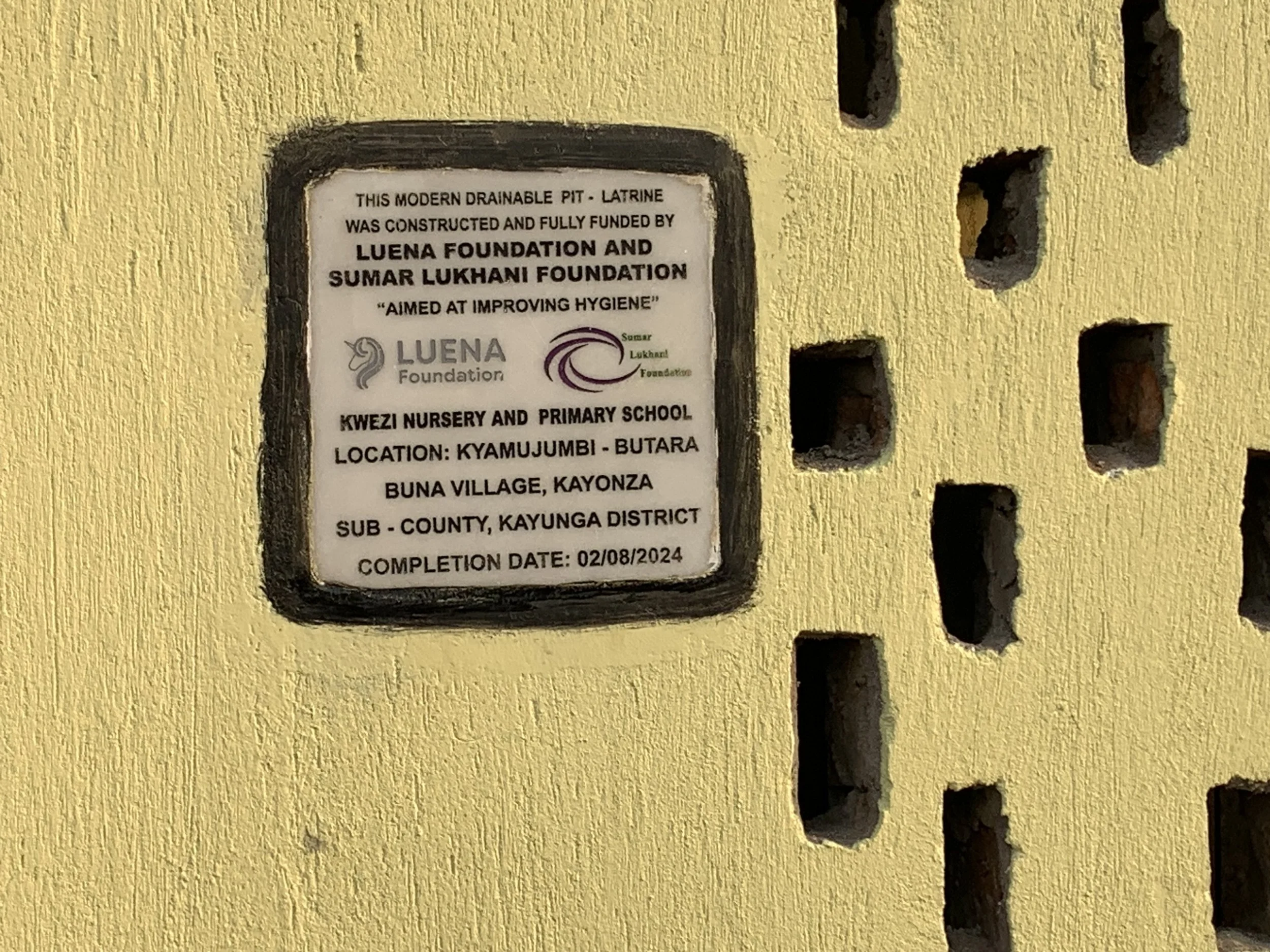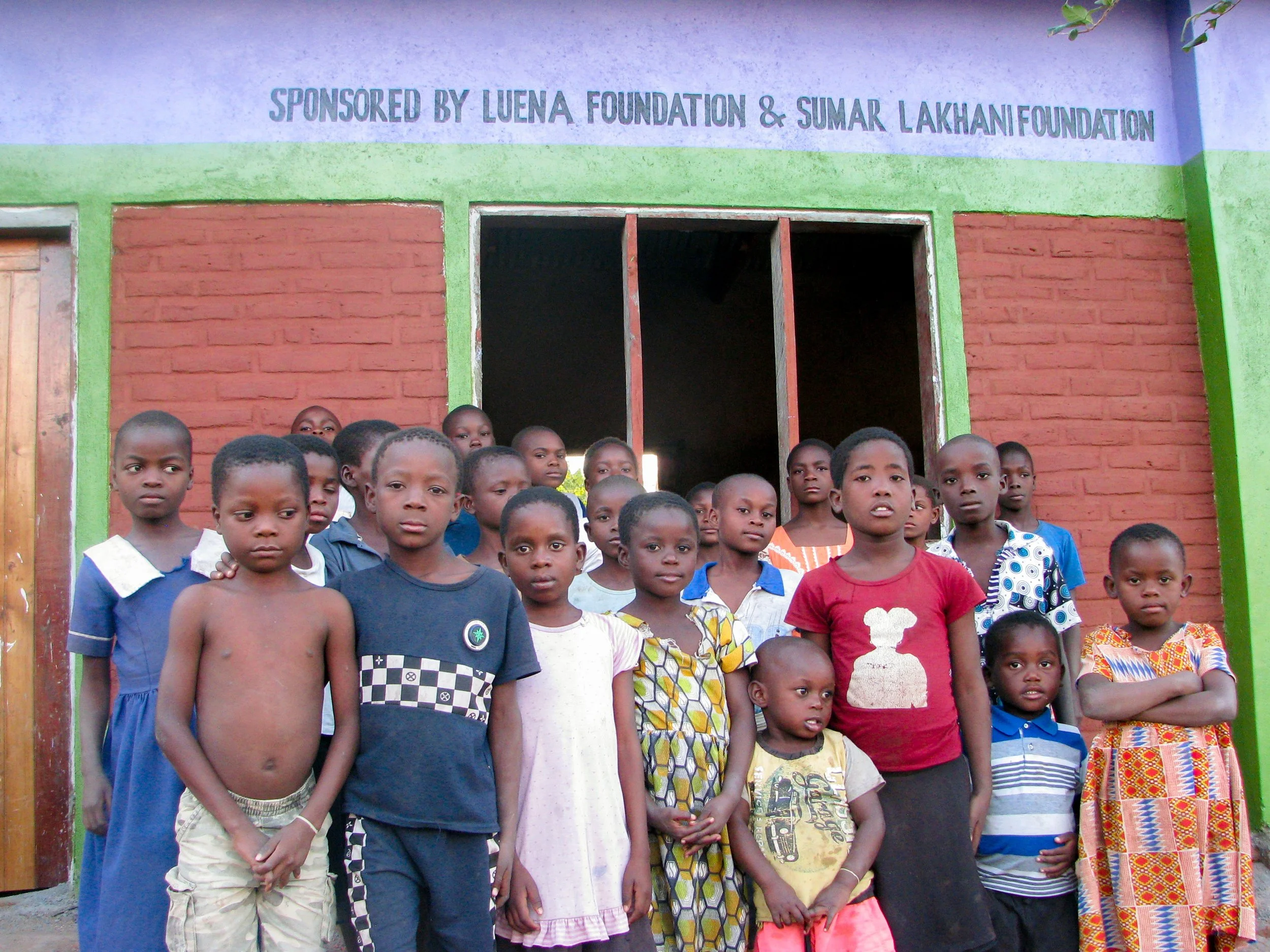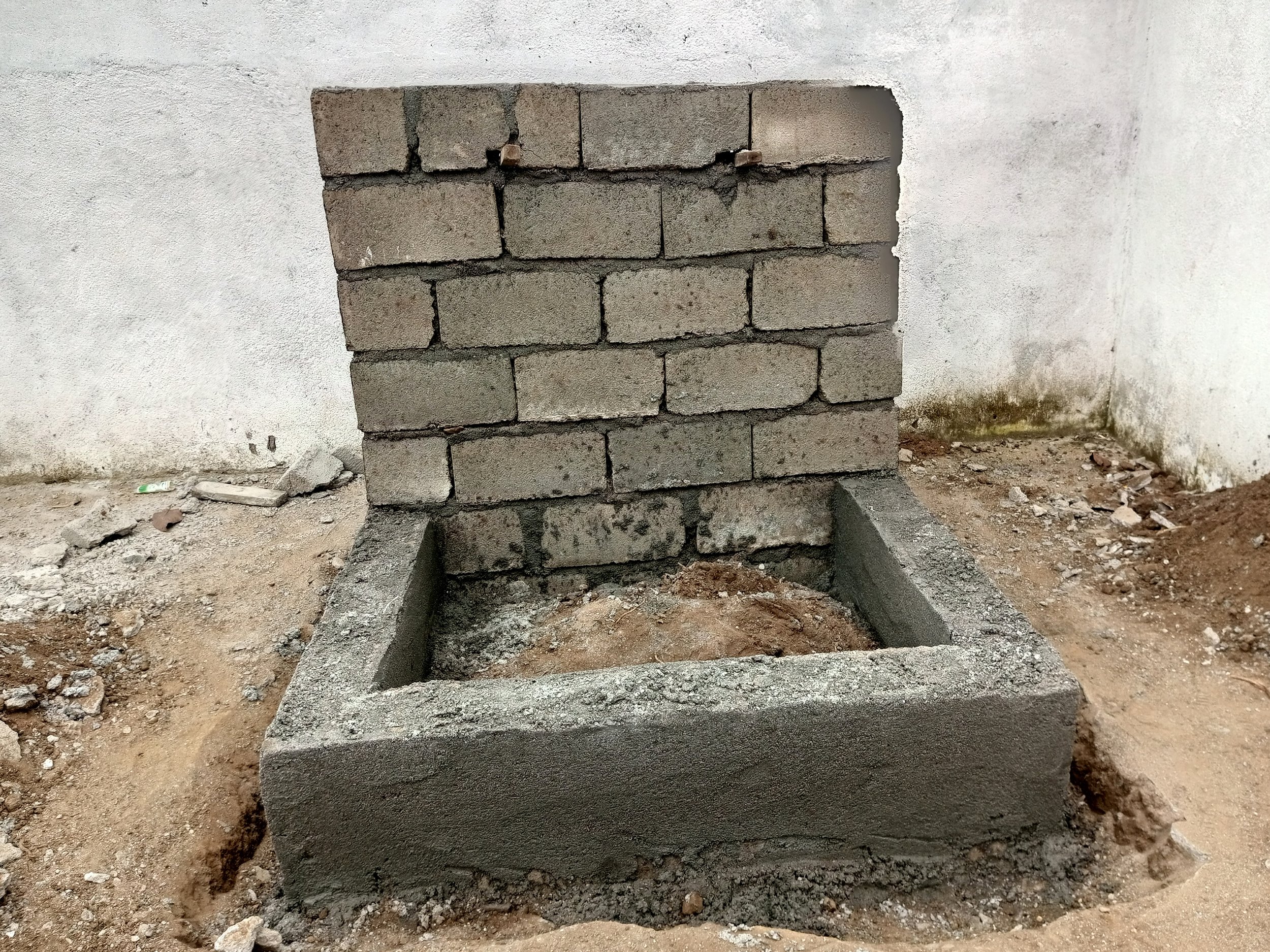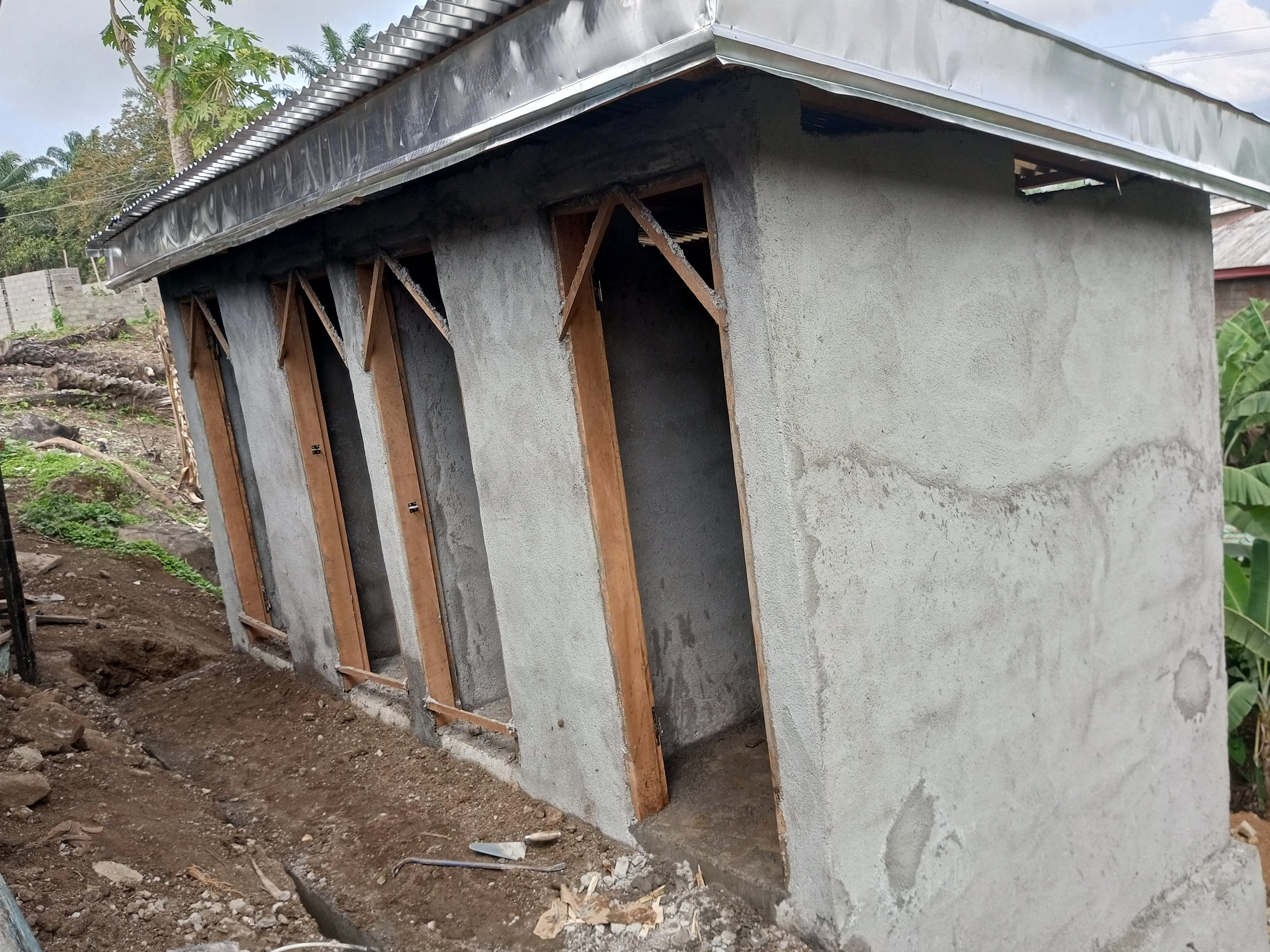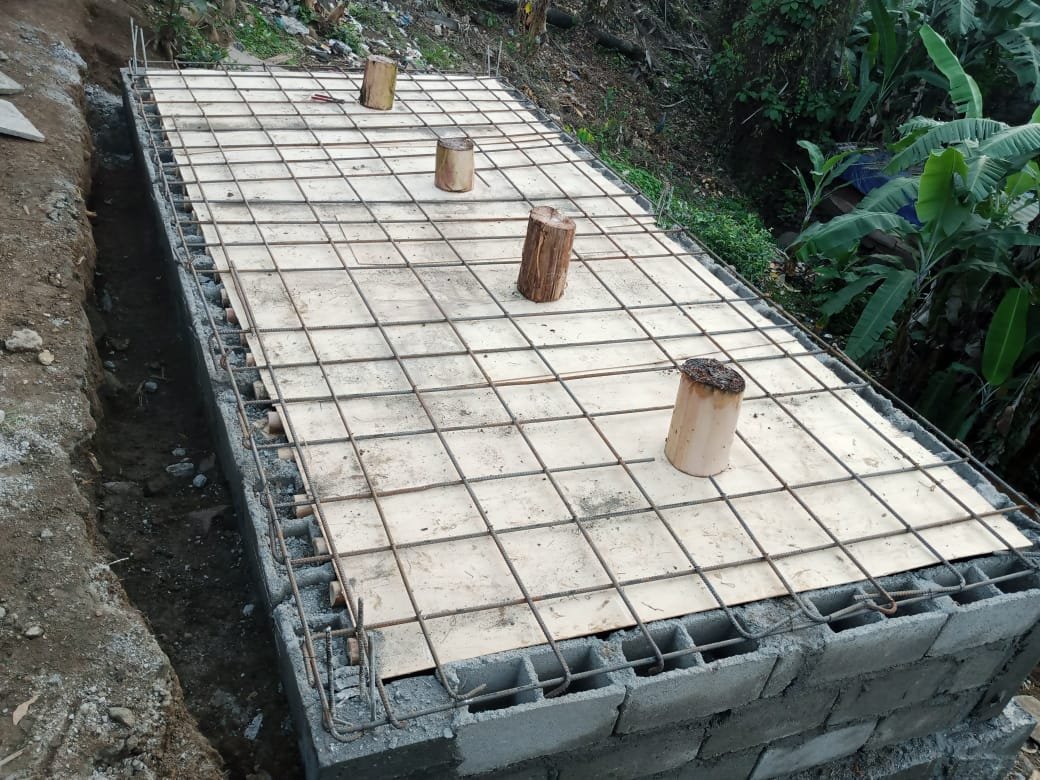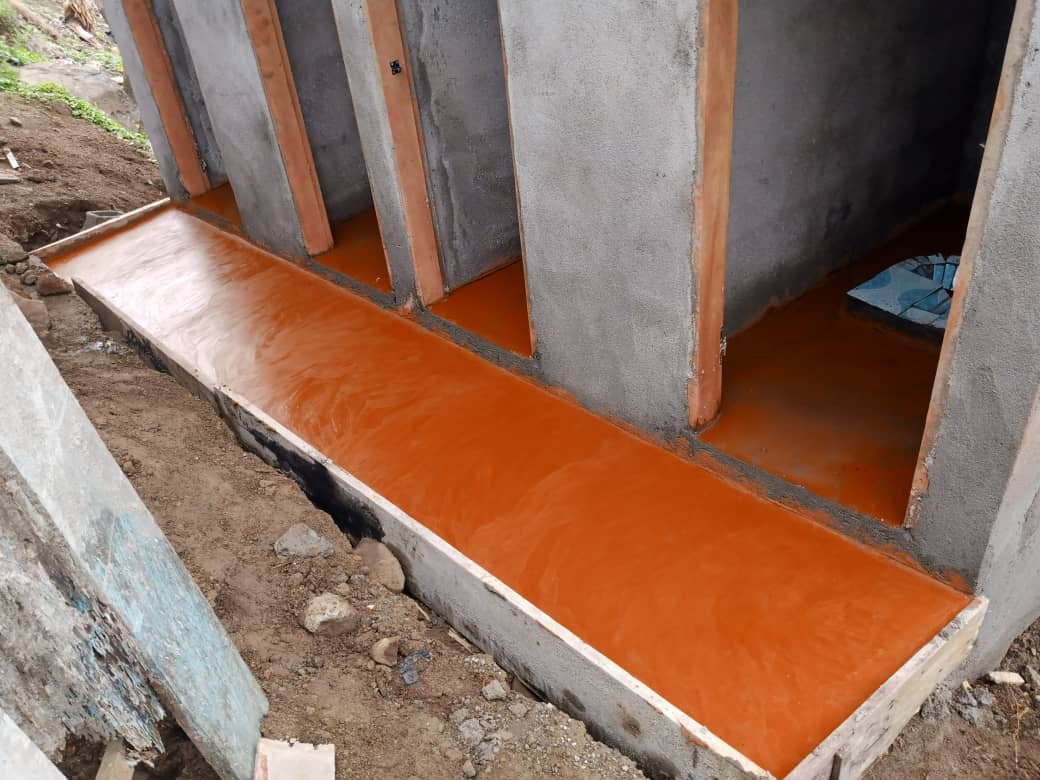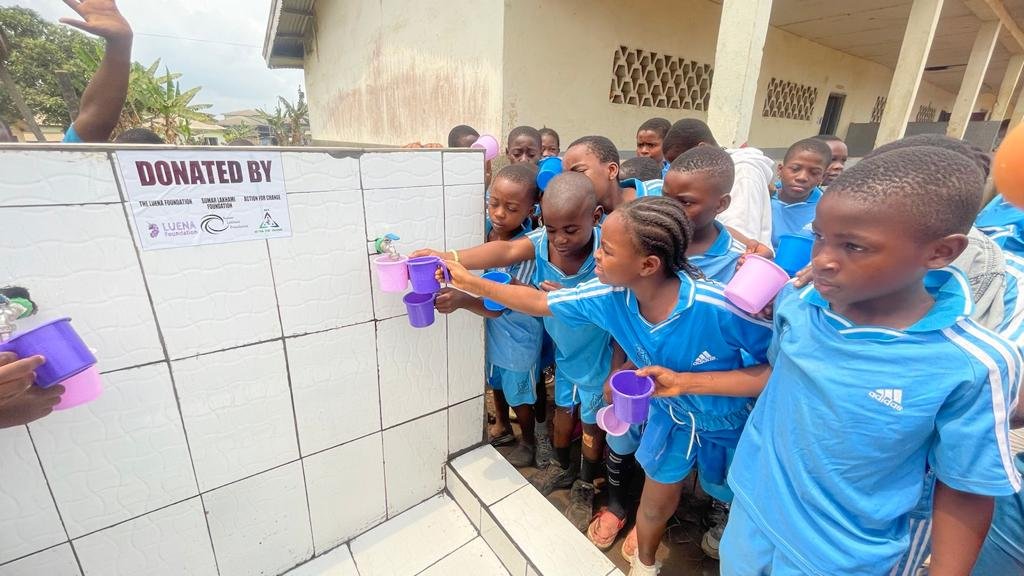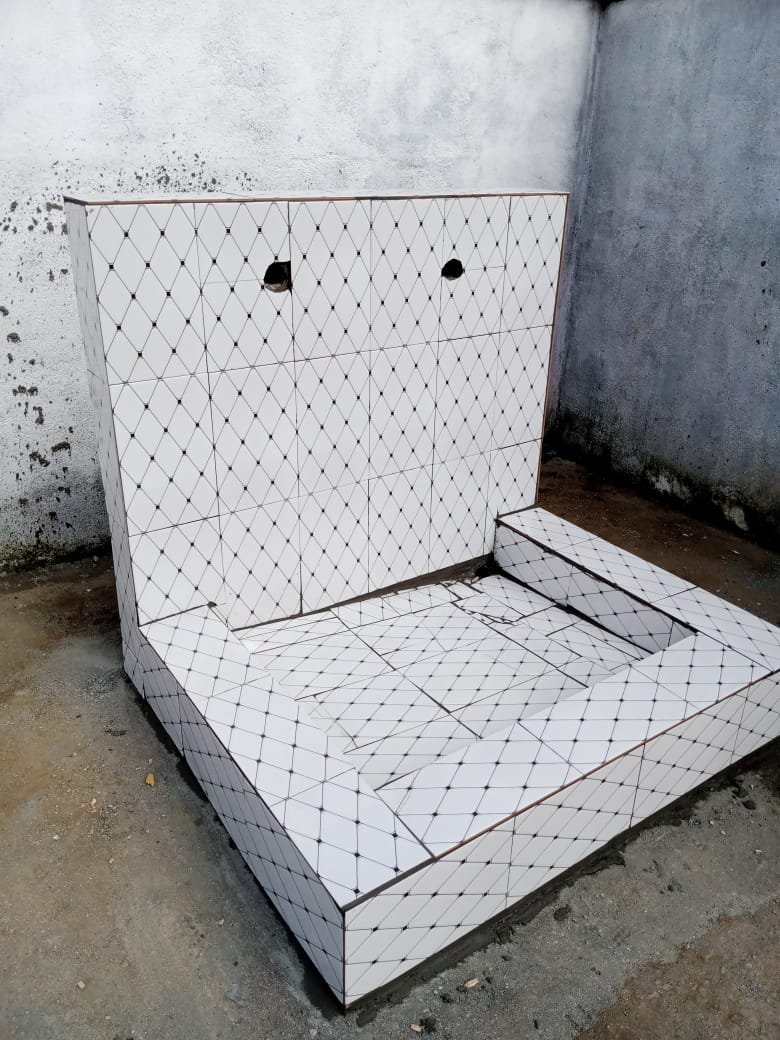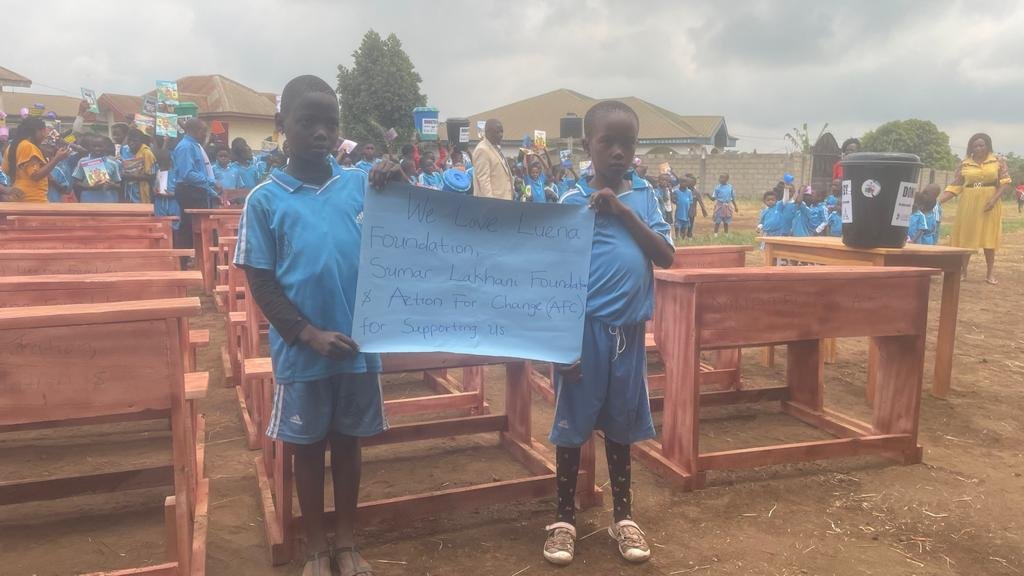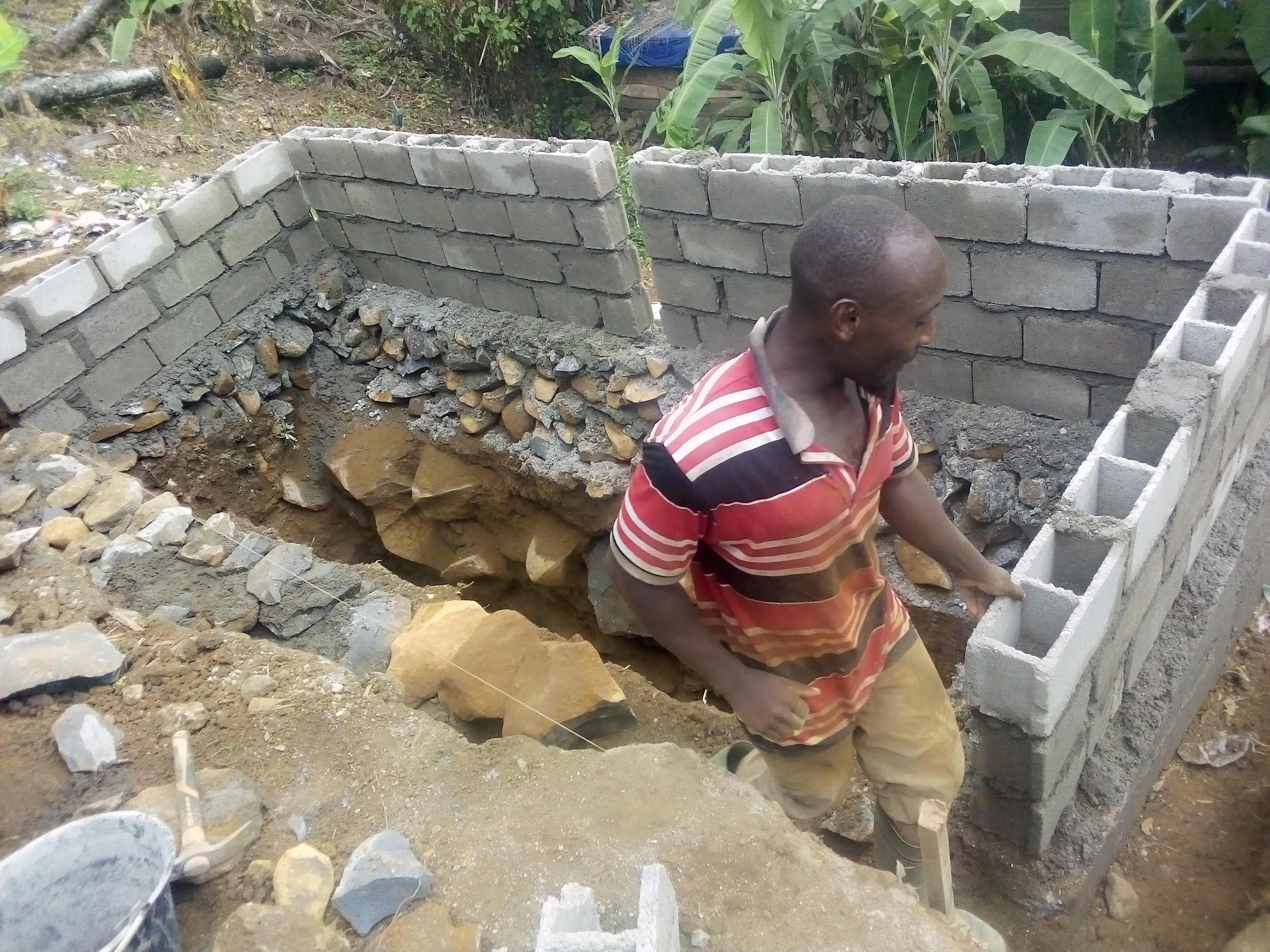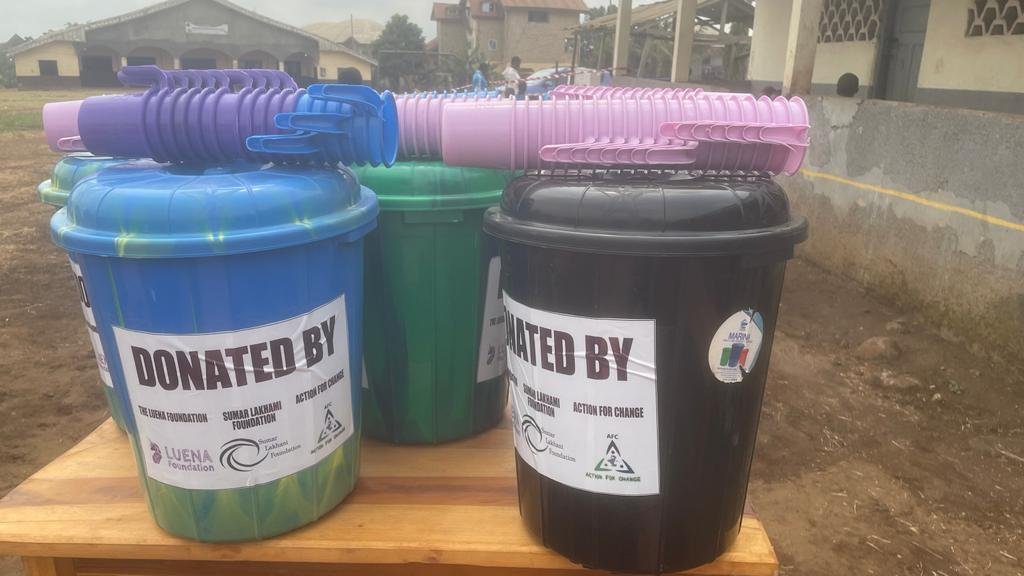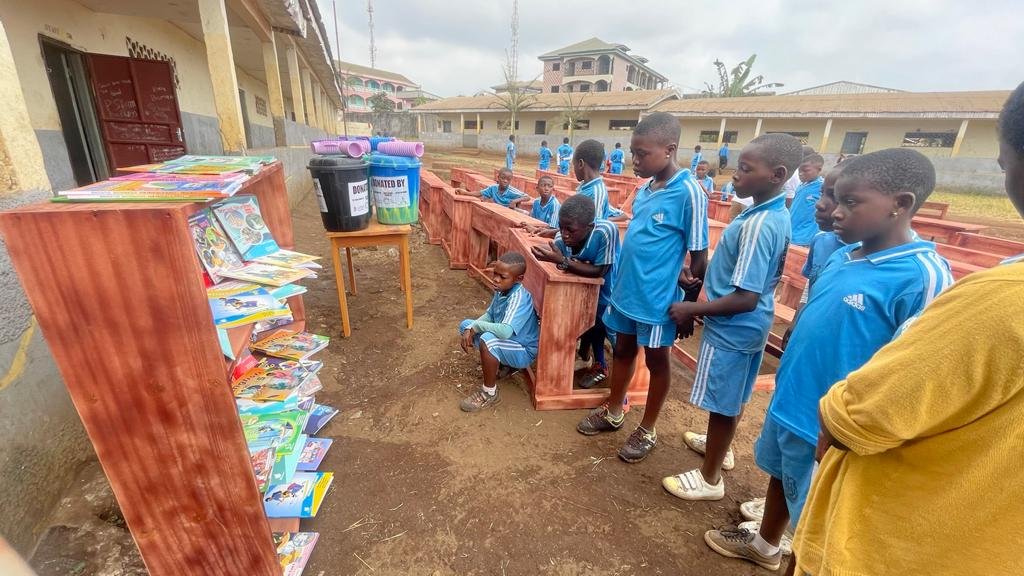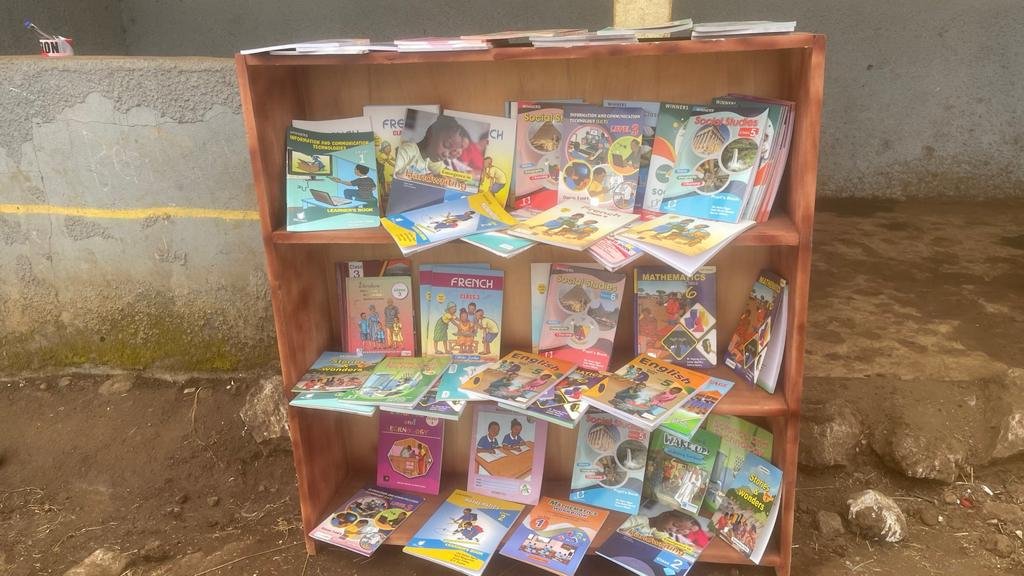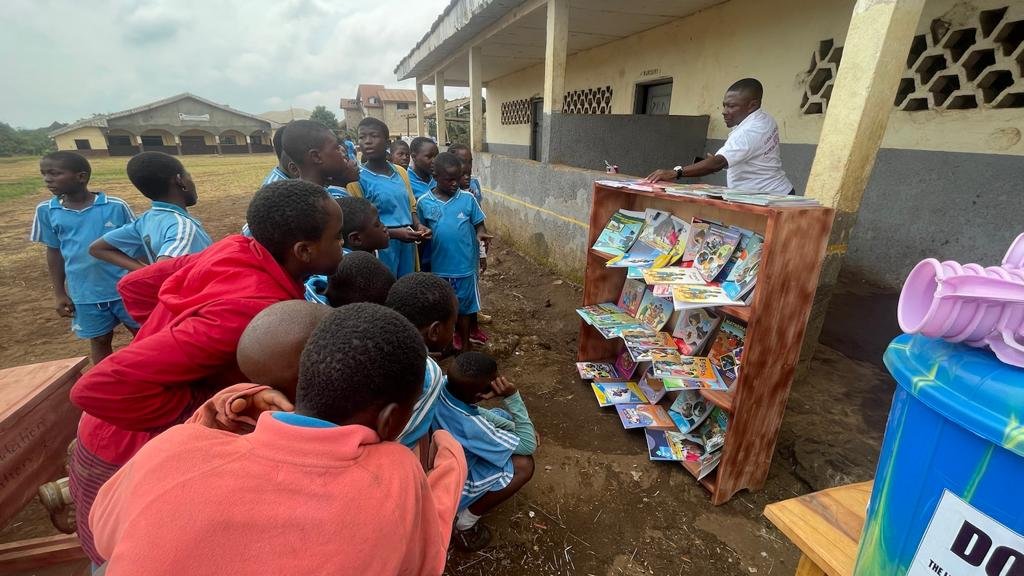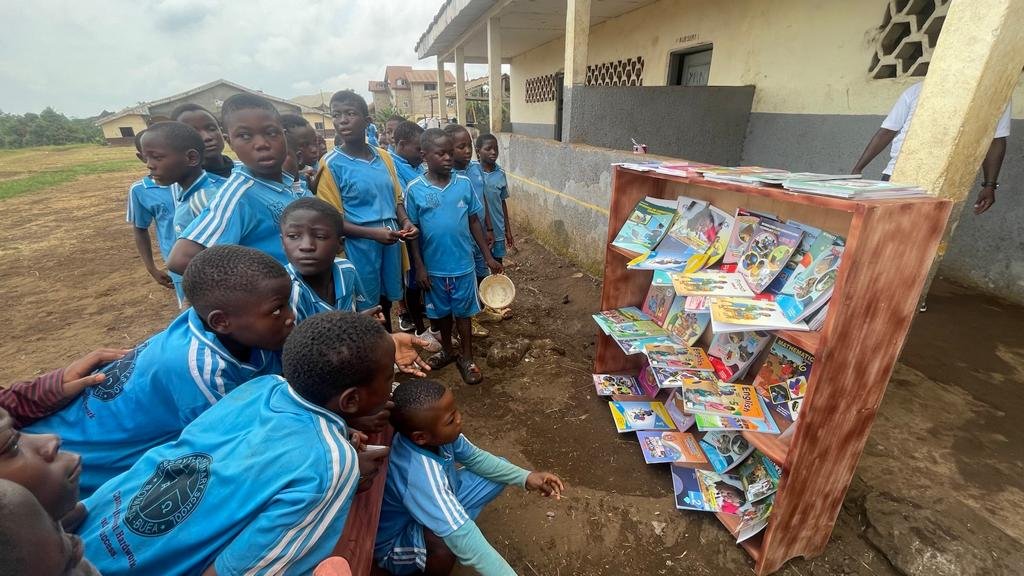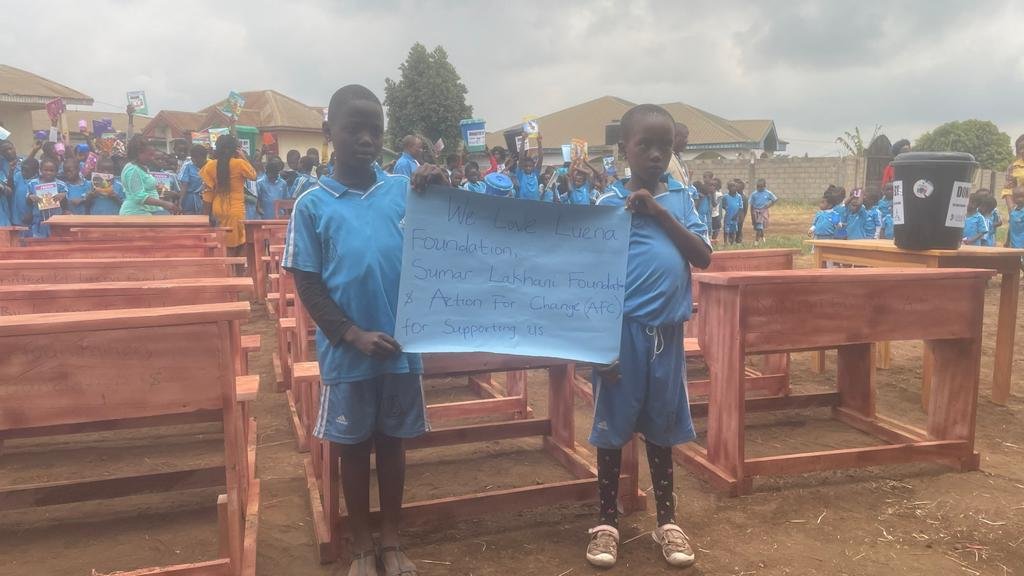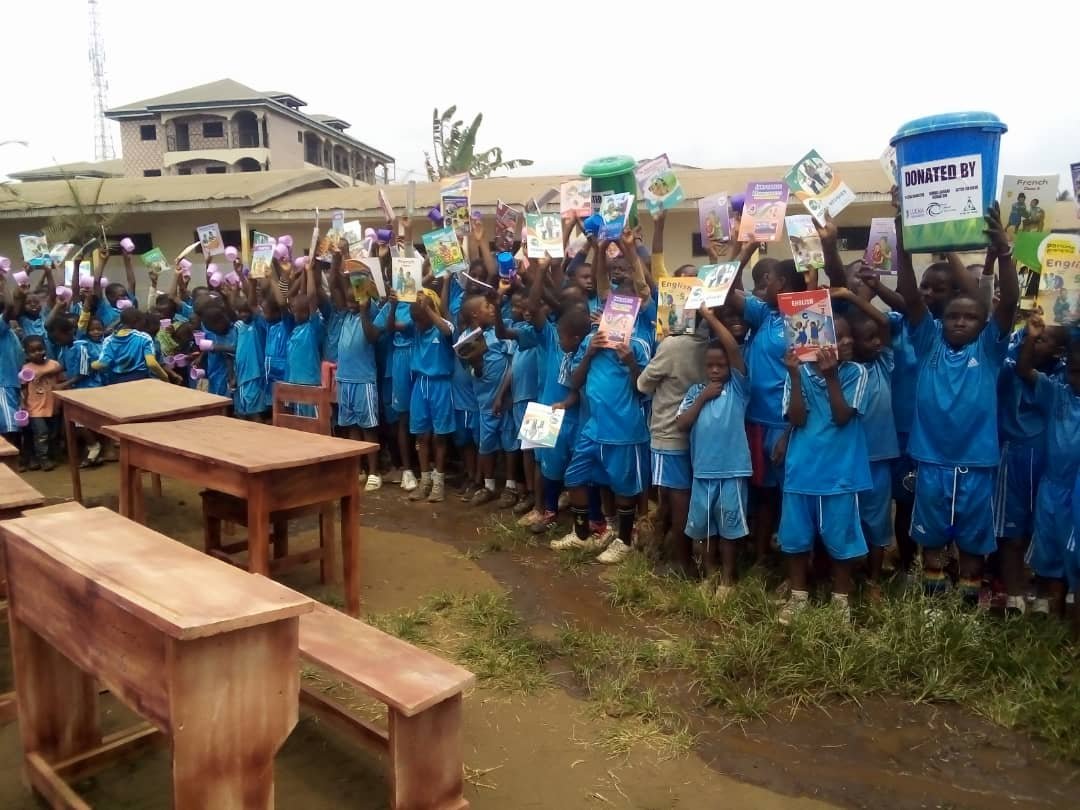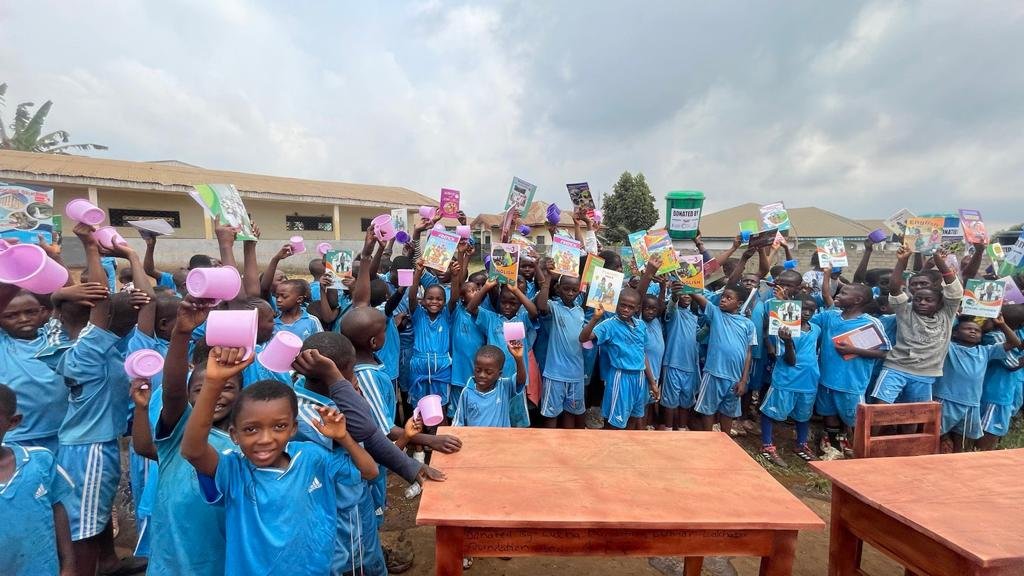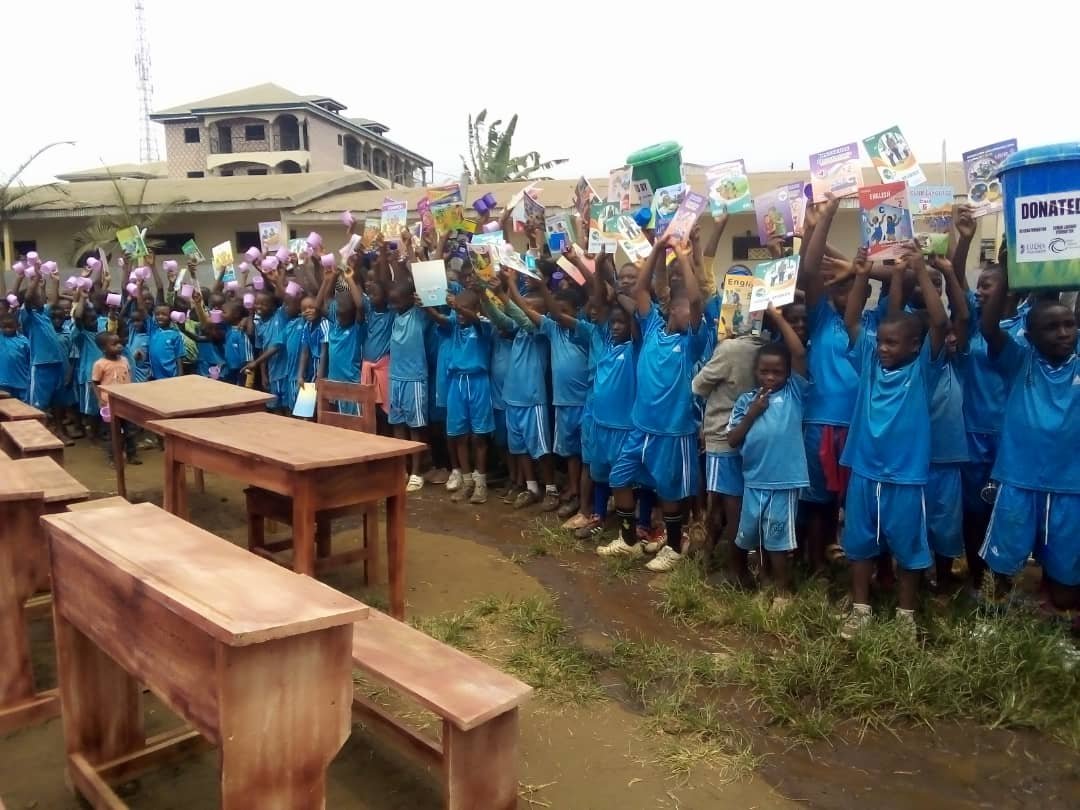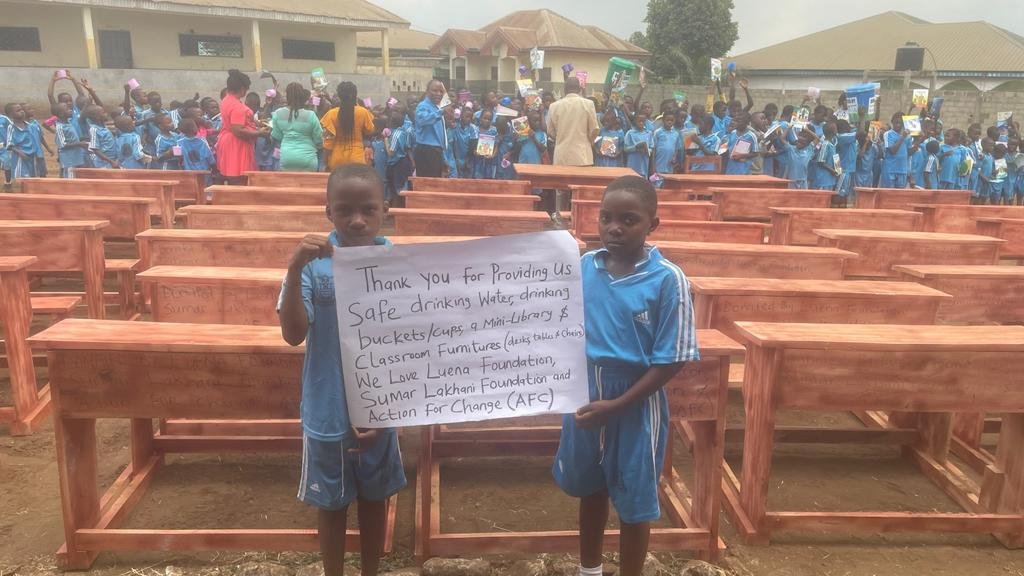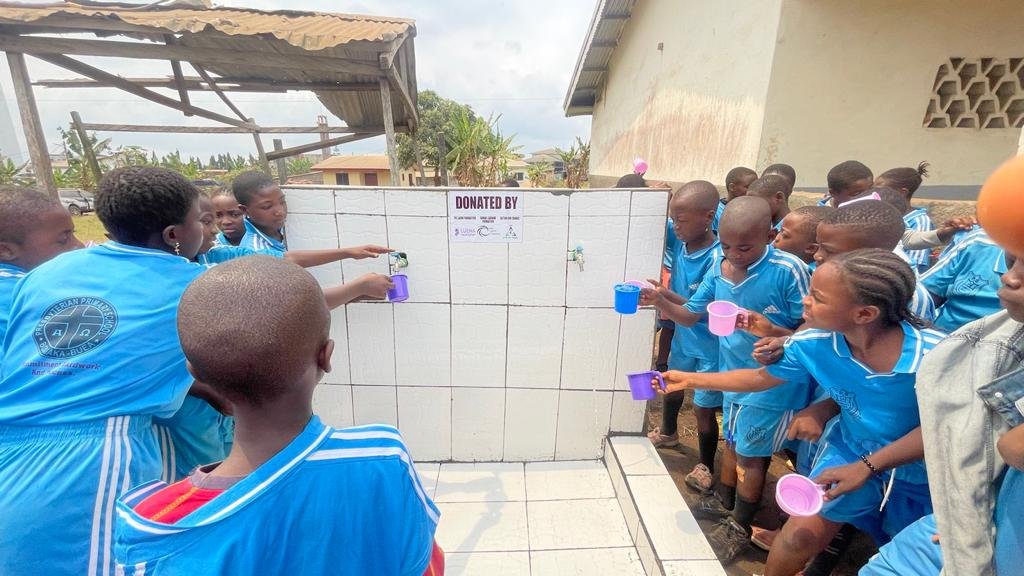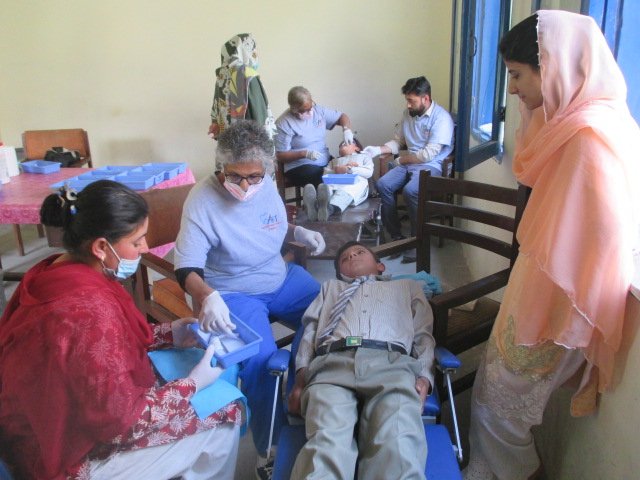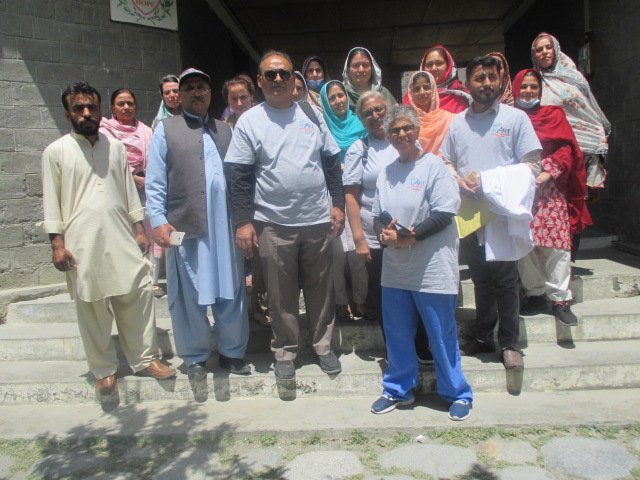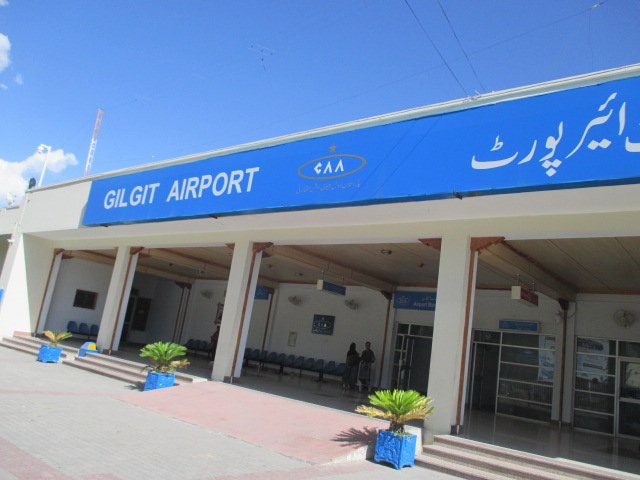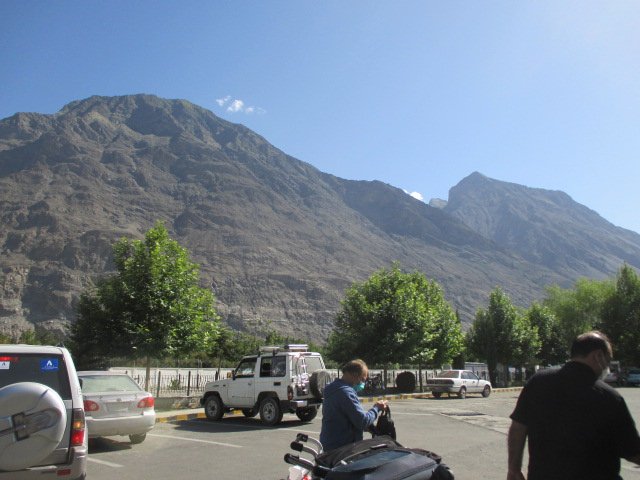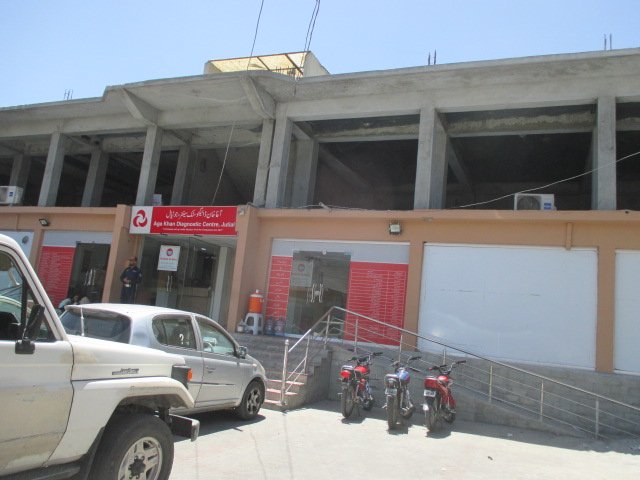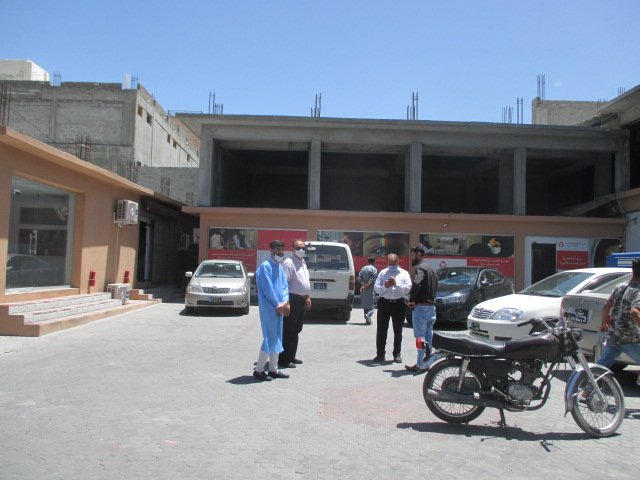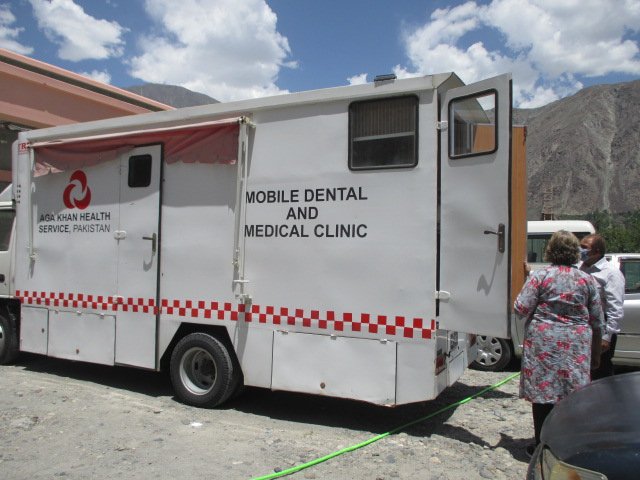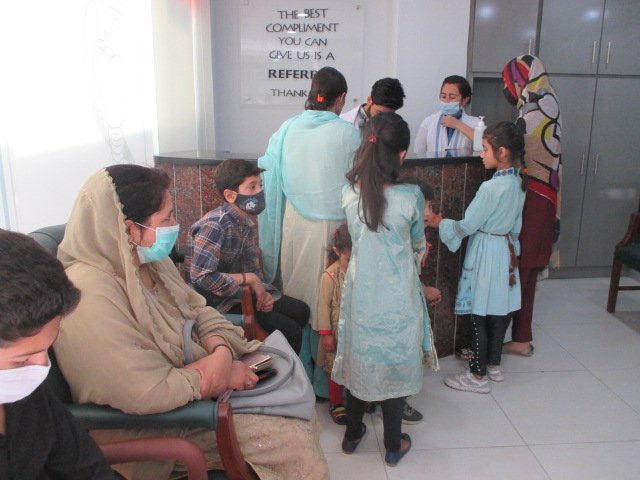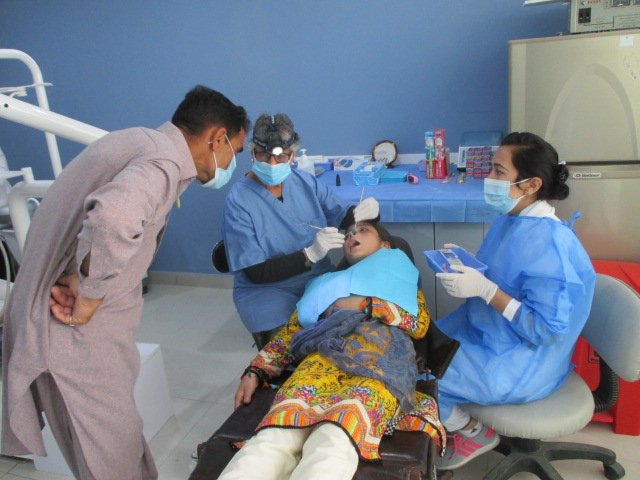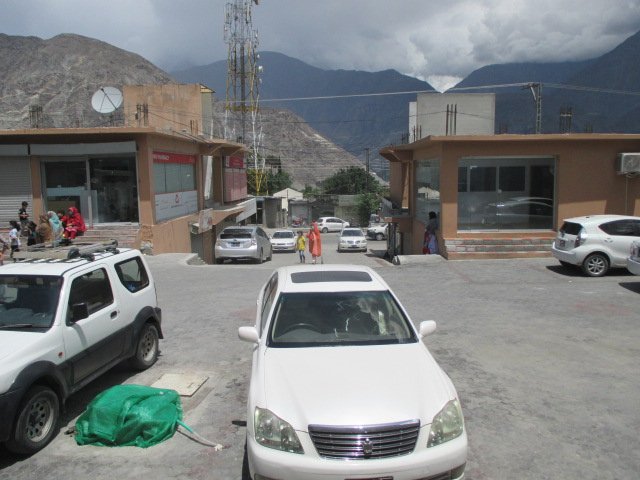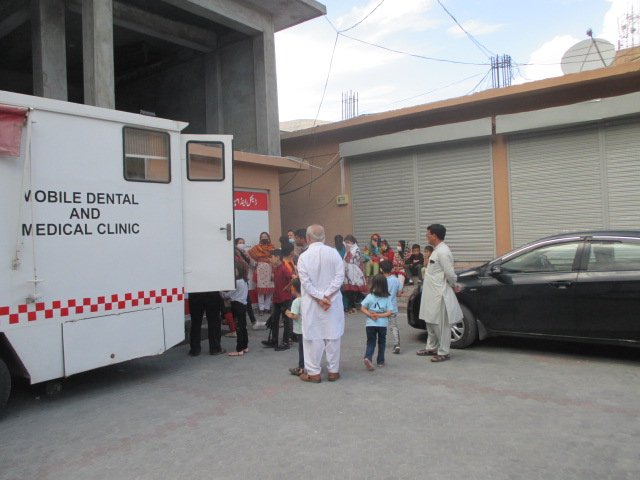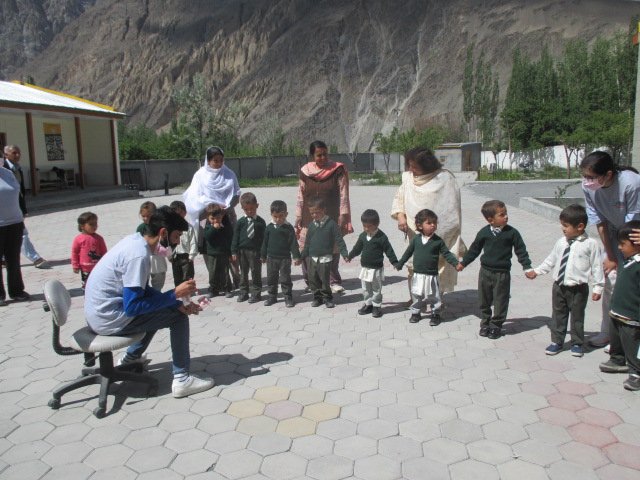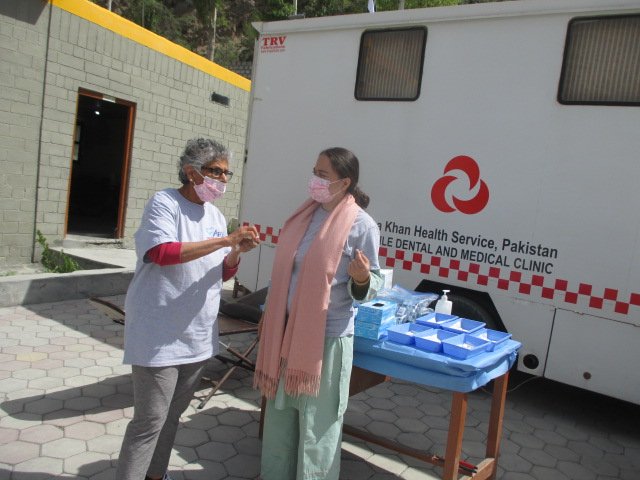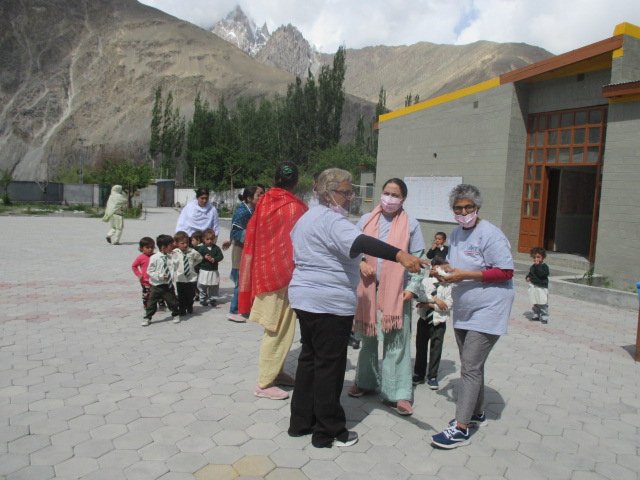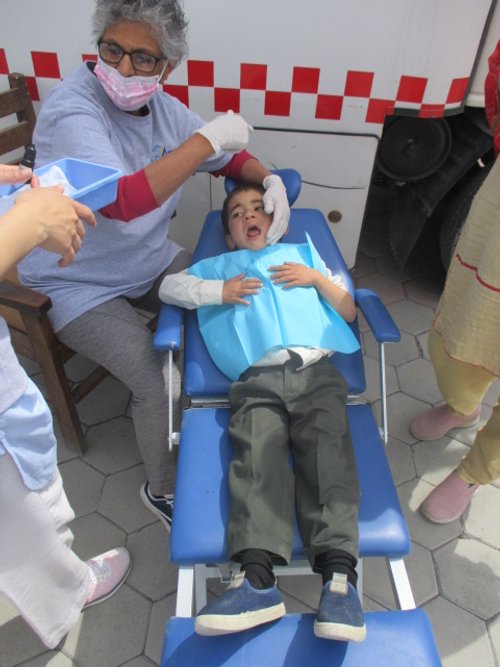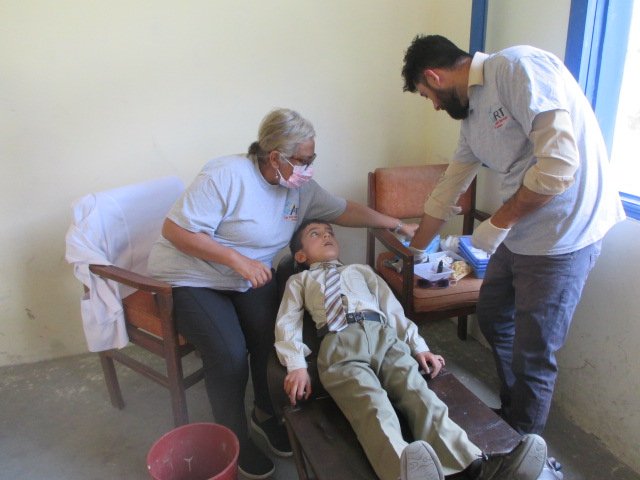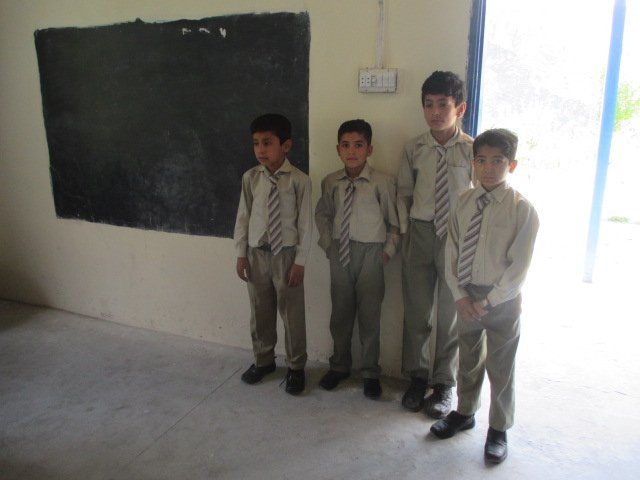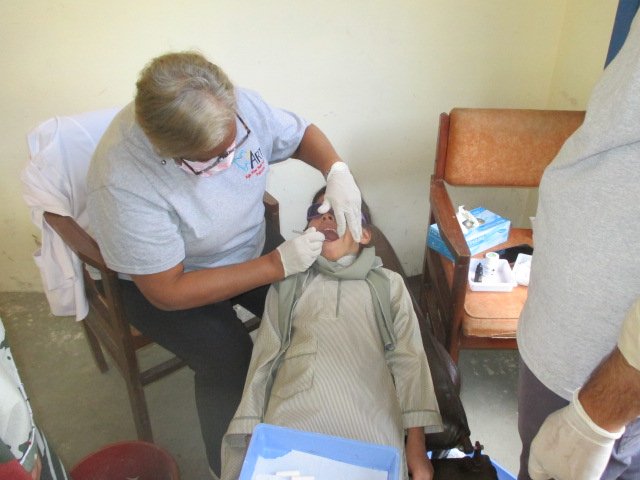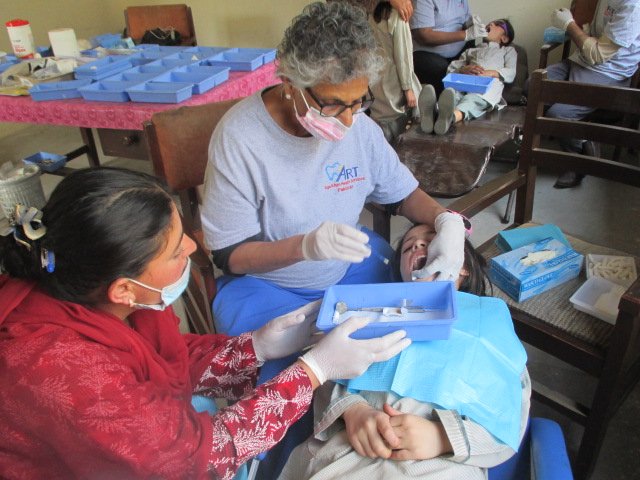Preventive Dentalcare in Tribal village of India
Location: Villages in Mokhada, India
Global Partner: The Gabriel Foundation
Local Partner: Grameen First Foundation, Mumbai
Project year 2025
Preventive Dental Care Reaches Tribal Villages in Mokhada
In collaboration with the Sumar Lakhani Foundation, The Gabriel Project Mumbai, and the Grameen First Foundation of Mumbai, Dr. Dilshad Sumar, a pediatric dentist with over 40 years of experience in the USA, recently traveled to the remote tribal villages of Mokhada, India. The Mokhada region, home to approximately 150,000 people—93% of whom are members of “Scheduled Tribes” such as the Katkari—faces severe challenges in accessing basic healthcare, especially dental services, which are almost non-existent. Isolated by geography and burdened by historical marginalization, many children in Mokhada had never been examined by a dentist before this visit.
A Focus on Prevention and Education
During the visit, Dr. Sumar partnered with the Grameen First Foundation’s medical team as well as the school teachers to provide preventive dental care to schoolchildren in Mokhada. Over 2.5 days, approximately 180 children from local schools were screened and treated. Silver Diamine Fluoride (SDF) was applied to halt the progression of cavities, and fluoride varnish was used to strengthen teeth. The team also delivered oral hygiene education, demonstrating proper brushing techniques, and distributed toothbrushes and toothpaste to each child. Teachers were trained to help reinforce these habits long after the visit.
Building Lasting Impact
Beyond the dental treatments, the project emphasized sustainable health education. Children learned about the importance of daily brushing, the dangers of excessive sugary food and soda, and the value of seeking early dental care if possible. The initiative not only addressed immediate dental needs but also planted the seeds for better long-term oral health. With strong partnerships between Dr. Dilshad Sumar, the Sumar Lakhani Foundation, Gabriel Project Mumbai, the Grameen First Foundation, and local schools of Mokhada, this project demonstrated how targeted outreach can make a lasting impact in underserved communities.
________________________________________
Impact Summary
• Children screened & treated: ~180
• Project duration: 2.5 days
• Partners involved: Dr. Dilshad Sumar, Sumar Lakhani Foundation, Gabriel Project Mumbai, Grameen First Foundation, schools of Mokhada
• Treatments provided: Silver Diamine Fluoride application, fluoride varnish, oral hygiene education
• Supplies distributed: Toothbrush & toothpaste kits for every child
***************************
Cleft Palate Surgeries
Location: Devota, Rwanda
Partner: Smile Train
Project Description: Provide Cleft Surgeries
Project Year: 2025
***************************
Khadijha Gets Her Life Back
Location: Nigeria
Global Partner: The Fistula Foundation
Project year 2025
A Postcard Says it All
***************************
Healthy Smiles in Bansbari, Nepal
Location: Bansbari, Nepal
Global Partner: The Rukmini Foundation
Local Partner: Tribhuvan Adarsha Awasya Secondary School
Project year 2025
In April 2025, the Rukmini Foundation had the privilege of partnering with Dr. Dilshad Sumar, a pediatric dentist and global health volunteer, for a special dental health initiative near Kathmandu, Nepal. Over the course of three days (April 24–26), students at Bal Sudhar Basic School in Bansbari received professional dental screenings and preventive treatments that will help protect their oral health long-term.
Bal Sudhar, one of Rukmini’s 17 partner schools, was selected for this pilot due to its accessibility and manageable size—72 students from Grades 1 through 8. With the help of Executive Director Usha Adhikari, Program Officer Deepa, and the dedicated Rukmini staff, the event was organized smoothly and efficiently.
Dr. Sumar conducted dental screenings for all students present, treated early-stage cavities using Silver Diamine Fluoride (SDF), and applied fluoride varnish to protect healthy teeth. The team also held a session on oral hygiene, teaching the children how to brush and floss properly—simple skills with a lifelong impact.
This collaboration is a model for community-led, health-focused partnerships. Connecting global expertise with local leadership, it created a sustainable impact on children’s oral health and education. There is potential for expanding this initiative to other related schools, and for training the local staff to conduct regular screenings and oral hygiene education. Dr. Sumar has provided similar services in Cambodia, Lebanon, and Pakistan.
***************************
Classroom Desks and Construction of a Toilet at the Rosa Academy
Location: Bonlifamba Village, Cameroon
Global Partner: The Luena Foundation
Local Partner: Action For Change
Project year 2025
The project, implemented by Action for Change (AFC) with funding from the Luena Foundation and the Sumar Lakhani Foundation, focused on improving sanitation and classroom infrastructure at Rosa Academic Nursery & Primary School in Bolifamba village, located in the Buea municipality of Cameroon.
The initiative had two main components:
1. Construction of a Gender-Sensitive Toilet Facility
A four-compartment toilet block was built—two stalls for girls, one for boys, and one for teachers. This addressed a critical need, as the school previously had no proper sanitation facilities. Students often resorted to open defecation, creating serious hygiene and safety risks.
2. Provision of Classroom Furniture
AFC supplied the school with 40 benches, 2 teacher tables, and 2 chairs, replacing the unsafe and uncomfortable conditions where children had been sitting on stones or bare floors. This significantly enhanced the learning environment, promoting better attention and participation in class.
The project aimed to improve public health, learning conditions, school attendance, and student dignity, while also strengthening community involvement in education. It was designed with a community-centered approach, involving parents, teachers, and local leaders from planning through implementation. Despite some challenges during construction, like children attempting to use the toilets before they were ready, the project was completed successfully and has already yielded positive impacts.
Desks in Classroom and new toilets
***************************
Construction of a Washroom at Standard Primary School
Location: Zzana, Uganda
Global Partner: The Global Uplift Project
Project year 2025
A New Washroom Brings Dignity to Standard Junior Primary School
At Standard Junior Primary School in Zzana, a suburb of Kampala, Uganda, 198 boarding students and resident staff have been bathing in an open-air brick structure. They carried buckets of water, and there was little privacy or protection. Recognizing the urgent need for better facilities, the Global Uplift Project (TGUP) and the Sumar Lakhani Foundation (SLF) partnered to fund the construction of a proper washroom.
With partial funding from the SLF Foundation, TGUP built a brick building with four private bathing stalls. Wastewater from the washroom drains safely into a soak pit located 120 feet away from the facility. The new structure provides students and staff with a clean, ventilated, and private space to bathe — dramatically improving hygiene, personal dignity, and overall well-being of the resident students and staff.
The Sumar Lakhani Foundation is proud to support sustainable infrastructure projects like this, which deliver immediate and lasting benefits to communities in need.
Before
Construction Phase
After
***************************
Construction of the first Classroom at the Kwezi School
Location: Kayunga District, Uganda
Global Partner: Luena Foundation
Local Partner: Kwezi Child Foundation, Uganda
Project year 2025
Building Hope: A New Classroom in Uganda
At the heart of rural Uganda, an inspiring story of transformation is unfolding—one fueled by community spirit, international partnership, and a shared commitment to education. Through the collaboration of the Kwezi Child Foundation, the Luena Foundation, and the Sumar Lakhani Foundation, a new classroom was planned, marking a significant step forward in the local school’s development. Thanks to the tireless efforts of community members, the classroom project has reached an important milestone. The speed and efficiency of construction were matched by the heartwarming sight of local residents coming together to move desks into the new space—an inspiring act of community ownership.
A commemorative plaque installed on the classroom honors the shared efforts of the Kwezi Child Foundation, Luena Foundation, and Sumar Lakhani Foundation. It stands as a symbol of what can be achieved when grassroots leadership is supported by global partnerships.
Community Empowerment Through Education
The impact of the classroom is already rippling through the village. According to Eddie Kwezi, founder of the Kwezi Child Foundation, the project has sparked a deep interest in learning, even among older members of the community. Elders have begun asking about opportunities for adult education, a testament to how education can inspire across generations.
Eddie emphasized the foundation’s continued focus on securing a strong future for the youth—believing that nurturing the next generation is the first step toward broader community transformation.
Next Steps: Laying the Foundation for More
With the first classroom complete, attention has turned to expansion. On February 21st, Eddie shared that the community would begin laying 20,000 bricks as part of the next construction phase. This will help advance the long-term goal of providing complete primary education in an area where access to quality public schooling has been limited.
This next phase continues to build on the momentum created by the strong collaboration between community members and the three foundations. Eddie expressed sincere gratitude for the continued support, emphasizing the importance of transparency, partnership, and shared vision. The classroom, while simple in structure, represents something far greater—a commitment to dignity, opportunity, and a better future for the children of Uganda.
BEFORE
AFTER
***************************
Construction of Toilets at Kwezi School
Location: Kayunga District, Uganda
Global Partner: Luena Foundation
Local Partner: Kwezi Child Foundation, Uganda
Project year 2024
Project Partners
The Kwezi School latrine and septic system project was supported by two key funding partners. The Sumar Lakhani Foundation (SLF) and The Luena Foundation, reflecting their commitment to educational and community development initiatives Together, these organizations provided crucial financial support to ensure the successful implementation of the project. The project was implemented by the Local Community and Eddie Kwezi. Eddie is the local leader and founder of the Kwezi Child Foundation (KCF). His engagement with the community has been key in mobilizing resources and labor for the project. Eddie's background as an engineer ensured a level of expertise in the design and construction processes
The Project
The project involved the construction of modern latrine facilities and an efficient septic system for the Kwezi School in Kayunga District, Uganda. This initiative aimed to install five toilets and urinals, which replaced inadequate existing facilities. A significant improvement over past sanitation solutions, the new septic system ensured effective waste management and enhanced safety. The involvement of the local community, particularly through labor contributions and material support, was a fundamental aspect of the project, fostering local ownership.
Impact on the Community
The impact of this project on the Kwezi community is multifaceted. Firstly, improved sanitation facilities will enhance health and hygiene, reducing the risk of waterborne diseases among students. This, in turn, is expected to improve school attendance and academic performance. Secondly, the project promotes community empowerment, as local leaders like Eddie Kwezi mobilize residents to participate actively in the initiative. The collaborative effort not only strengthens community ties but also lays a foundation for sustainable practices in future projects. Overall, the latrine and septic system project is set to create a healthier, safer, and more supportive educational environment for the children of Kayunga, Uganda.
***************************
Community Dental Clinic
Location: Chapakot, in the Pokhara Area of Nepal
Partner: Jevaia Foundation
Project Year 2024
Project Summary: Chapakot Rural Dental Clinic Initiative in Nepal
The Chapakot Rural Dental Clinic Initiative is focused on providing accessible oral health care to the community of Chapakot, located in the Pokhara region of Nepal. With a population of approximately 4,244 people, Chapakot has been identified as an area with a significant need for dental services, prompting the establishment of this new clinic.
Location
- The clinic is situated in Chapakot, a village in the Pokhara Area of Nepal. The existing health facility serves as a vital health resource for the surrounding communities of Pokhara. This initiative aims to establish the availability of oral healthcare for residents.
Population Impact
- The clinic is expected to serve the entire population of Chapakot and the surrounding area, providing essential dental care to both children and adults. The clinic aims to address the existing gaps in dental services and preventive care to improve overall health outcomes in the community.
Service Model
- The clinic is staffed by a qualified dental hygienist, Sonika Gurung, and a trained assistant, Man Maya Dhungana. They provide services aligned with the Basic Package of Oral Care (BPOC), as endorsed by the World Health Organization, ensuring that dental care is culturally appropriate and community-focused.
- Services offered include routine check-ups, preventive care, basic treatments, and referrals as necessary.
Outreach and School Programs
- As part of its commitment to public health, the Chapakot clinic will implement systematic outreach programs, including annual oral health screenings and basic treatment provisions in local schools. This initiative aims to ensure that every child in Chapakot receives proper dental care and education, promoting preventive health practices from an early age.
Funding Structure
Local government funding has supported the clinic's establishment, facilitating the hiring of the dental technician and operational costs. The Sumar Lakhani Foundation has provided crucial financial backing for the clinic's setup.
- Jevaia plays a key role, co-funding the project and overseeing the training and certification of clinic staff, ensuring high standards of care through their established expertise.
Training and Competency Certification:
- Both Sonika Gurung and Man Maya Dhungana have undergone specialized training in the BPOC model, and they are equipped to provide quality dental care. They will continue to receive ongoing technical support and supervision from Jevaia to maintain the highest standards of service.
Quality Assurance and Support:
- Jevaia will provide ongoing support and supervision to ensure quality assurance across all clinic activities and outreach. This ensures that all aspects of care are people-centered and responsive to the unique needs of the community in Chapakot.
Conclusion
The Chapakot Rural Dental Clinic Initiative represents a significant advancement in oral health care accessibility for the local population. By establishing this clinic and incorporating outreach programs, the project seeks to improve the quality of life for residents, promote preventive dental health, and enhance overall community health. The collaboration between the Sumar Lakhani Foundation and Jevaia is vital for the successful operation and sustainability of the Chapakot dental clinic, positively impacting thousands of individuals in the region.
*****************************
Wings of Hope Education Center
Location: Turkana County, Kenya
Global Partner: Luena Foundation
Local Partner: Turkana Community Foundation, Lodwar Kenya
Project Description: Construct school toilets with modern septic tank
Project Year 2024
Turkana tribe’s ancestral lands are located West of Turkana Lake in northwest Kenya. For centuries the Turkanas have led a nomadic life, moving from place to place in search of fodder and water for their livestock. Even though education is free in Kenya, it is a challenge to establish schools to serve the children of the nomadic Turkana. Most government schools are not readily accessible to the children of nomadic families. To address this challenge, the Turkana Community Foundation (TFC) was established and registered as a community-based organization in 2015 with one of its missions to make education available to the local children.
The Turkana Community Foundation established a one-room classroom called “Wings Of Hope Education Center” in Kanamkemer. Kanamkemer ward of Turkana County is ranked among the poorest counties in Kenya. Kanam ward has approximately 50,000 people, with the majority being young children. Most residents live a nomadic lifestyle, and children routinely drop out of school to search for pasture for their livestock.
The Wings of Hope Education Center initially provided only preschool education in a one-room school. The students sat on the floor. This early education, like a pre-K, was so successful that with the financial support of The Luena Foundation and Sumar Lakhani Foundation, an additional classroom was constructed to provide Grade 1 education. Both enrollment and attendance went up substantially when the primary Grade 1 was offered in the newly built classroom equipped with desks gifted by our partner The Luena Foundation and lunches provided by Mary Meals.
Click Here to Read the Full Report
***************************
Bulidling Homes for Flood Victims
Location: Dadu, Sindh Pakistan
US Partner: Relief and Rehab Asia Inc.
Global Partner: The Pravalli Welfare Trust, Pakistan
Project Description: Build Flood resistant homes of flood vistims
Project Year 2024
What happened?
The floods in Pakistan in 2022 submerged one-third of the country, affecting millions of people. Sindh in the south, received 450 percent more rain than normal. With flood basins saturated with water, the natural drainage system was overwhelmed and a vast area of farmland and human settlements was devastated. Local and International agencies rushed in to provide temporary shelter, food, water and healthcare.
Flood victims
Those displaced families whose homes remained standing later started returning to their villages. However, in remote parts of the Sindh Province, homes are traditionally made of mud and straw. According to the National Disaster Management Authority (NDMA), some 20.36 million people have been affected by the floods, with over 1.9 million houses damaged or destroyed. Many dwellings were completely washed out and the residents had nowhere to go even 2 years after the floods. Housing for these flood victims will require funding and procurement of shelter and construction materials on an unprecedented scale. The Sumar Lakhani Foundation in partnership with the Pravelli Welfare Fund of Pakistan have initiated the building of one room and a kitchen for the homeless families in Dadu in Sindh. Preference is given to widows with small children still living in tents and temporary shelters made of wood and grass, followed by disabled men who cannot earn. These homes are being built on a solid foundation with brick/block walls to be able to withstand another major flood.
***************************
Epilepsy Center
Nagabu Chikwawa District, Malawi
Local Partner: Chifundo Epilepsy Foundation Malawi
International Partner: Luena Foundation
Project Year: 2024
This project in Malawi was in partnership with the Chifundo Epilepsy Foundation and the Luena Foundation. The funds were used to complete the five-room building to treat patients, a school room and a safe house. The nearest secondary school is 18km away. The community has made 40,000 bricks, sold half of them and used the funds to purchase cement and other supplies to start the construction of the community Center. The community members provided all labor to date. This grant was used for windows, doors, plastering, and completion of the floor.
Chifundo reports on the opening and expected impact on the Nagabu Chihwawa Community
July 2024
We greatly appreciate Luena Foundation and Sumar Lakhani Foundation for your commitment and generosity towards transforming our rural community. We had no secondary school, Epilepsy clinic and safe room. People Including children women and elderly had to walk 18 kilometers to access these, but now it is a different story. With greater and much Donation from Luena Foundation and Sumar Lakhani Foundation, we built this in two months just like dreaming. The school is now ready to open on the next term, on 16 September, 2024 targeting 100 kids. And we look forward to having further opportunities for desks or chairs which we further appeal for your ongoing support. Children can't wait on 16 September to start attending their classes.
An Epilepsy Clinic is now in use as hundreds of children battling Epilepsy are accessing their free medication which have been provided by Luena Foundation near them and once gaining their milestone of seizures free, they will attend the school on the same campus.
Yours faithfully,
Chifundo Petro.
***************************
Solar Lights and water pump
Location: Hingoroja Sind Province
US Partner: Relief and Rehab Asia Inc.
Global Partner: The Pravalli Welfare Trust, Pakistan
Project Description: Install Solar Lights and a community water well
Project Year 2024
Hingoroja is located in the Sindh province of Pakistan. It is a low-lying region at the same elevation as the sea level with an average temperature of 93F. It receives less than 0.7 in rain a year. This area is inhabited by the Hingorja or Hingorjo (Sindhi: هنگورجو) a Sindhi Muslim tribe. They are one of several communities of pastoral nomads found in the Banni region of Kutch. There is no nationally built electrical power grid in this region because the tribes are geographically isolated. With so little rainfall each year, access to a reliable source of water supply can be challenging. One asset of this region is the fact that there are clear skies for about 95% of the days each year.
Deep Water Well Pumped by Solar Panels
The Sumar Lakhani Foundation partnered with US-based RRAI and the Pravelli Welfare Trust of Pakistan to install solar lights in ten homes in Hingoroja, Sind Province. Additionally, the Pravelli Welfare Trust installed solar panels to operate a submersible deep well pump to provide a steady source of water to the Hingorjo community and their livestock.
***************************
Cleft Palate Surgeries
Location: Kupang, East Nusa Tenggara, Indonesia
Partner: Smile Train
Project Description: Provide Ten Cleft Surgeries
Project Year: 2024
Field Report by Ruth Monalisa
The outreach program in Kupang, East Nusa Tenggara Province operated on 22 children to repair cleft palate. These surgeries were performed at St. Carolos Borromeus Hospital in Kupang. Many more children are in need of this life changing surgery. However, many challenges due to the remoteness of the islands of Indonesia as well as limited resources limits the number of patients that can be treated.
Susannah Shafer, CEO of Smile Train wrote
“We recently heard from a hospital in Indonesia where over 20 children received new smiles! Your donations made that incredible work possible, but there are still 446 children in Indonesia alone who are waiting to receive their life-changing treatment.. To help address these children waiting for their turn to have life-changing cleft treatment, we are turning to generous donors like you - members of our Premier Circle.”
Our grant will provide ten cleft surgeries in Kupang, Indonesia.
***************************
Solar pumps Tharparker
Location: Tharparker Desert SE Pakistan
US Partner: Relief and Rehab Asia Inc.
Global Partner: The Pravalli Welfare Trust, Pakistan
Project Description: Install Solar Wells in the Thar Desert, Part II
Project Year 2024
While the soil in the Tharparker desert is fertile, the lack of reliable water supply poses a huge challenge for the roughly 1.5 million residents. Traditionally, the villagers rely on digging water wells for access to water. However, the water table is receding rapidly and the villagers need to dig much deeper wells. In some villages, the wells are so deep that it takes a whole team of women to lift just a bucket of water.
Manually operated Deep well
The Sumar Lakhani Foundation in partnership with RRAI and the Pravelli Foundation completed a few solar pumps in 2023. There are over two thousand villages spread all over the Tharparker desert. To meet the needs of additional villagers more solar pumps were installed to supply drinking water as well as water for domestic animals and farms.
***************************
Bright Future School
Masoka, Tanzania
Local Partner: Attorney Timothy Massawe
International Partner: Luena Fondation
Project Description: Complete School Building and construct Toilets
Project Year: 2024
Need for Toilets
Please find the attached files for Masoka Public School. It is a government school with over 800 pupils. The school does not have toilet facilities and the ones they are using are too old and risk for the kids because they are pit latrine. Imagine the risk of the rain. In Tanzania some of the old toilets have collapsed,we recently witnessed the collapse of the Kirima toilets due to heavy rain. The government has discouraged the pit latrines in schools for that reason.
The school needs new toilets. We came up with the plan of building 8 toilets, urinal trough for the boys, and a changing or sanitary room for girls. The cost of building this toilet as you can see from the cost breakdown is 24,592,240.
The school together with the community have committed to raise 4500,000 equivalent to $ 2,000. We are looking for $8,000 to build the toilets now.
Pre-Existing School Toilets
History of Bright Future School
Bright Future School is a bridge for low-income families and unprivileged children from a very poor background by offering a good quality education in a safe and conducive learning environment. Bright Future School has started from Nursery up to Primary level with a limited number of students per class in order to give them proper education. With the new and clean environment, both the pupils and teachers are given proper environment to work comfortably and efficiently. Our school helps the families in a very poor background by offering scholarship. Teachers get proper continual training to update their skills in order to improve the understanding of the students in general.
With the accessibility of the different activities and school materials, students have discovered their talents and potential learn effectively. The school offers different activities to expand their knowledge through the use of technology like watching educational movies and science experiments which the public schools cannot offer. Extra-curricular activities are available for the students to develop their interests and skills. Children get the proper nutrition as the school provides the balance diet for the children as the school grows vegetable and fruits around the school compound.
Need for more Classrooms
Since its establishment in January 2022, the number of students from different backgrounds has increased hence the need to add more classrooms. The two classrooms under construction will serve approximately 60.
The school began in January 2022 with 24 students in 2 classrooms. There are now 70 students of which majority are from the underprivileged families who are being sponsored by the school thanks to generous sponsors. There are additional students who have applied to Bright Future for 2024 but there is currently insufficient space to accommodate them. If completed, the 2 new classrooms under construction would satisfy growing demand by serving approximately 60 new students by 2024 (for a total of 130 students).
Should the additional classrooms not be completed in due course, the existing 2 classrooms will be overcrowded and next year the school will be unable to move students to their required level of grade two and three. This would be a lost opportunity to serve the majority of students in need, especially those from underprivileged families. Thus, Bright Future urgently needs funding to complete the 2 classrooms.
***************************
Health Clinic Hubs
Northern Uganda
Local Partner: One Day Health
Project Year 2023
Our OneDay Health management, nurses and board express our heartfelt thanks to the Lakhani foundation for your amazing commitment to our work here Uganda. Your support in 2022 went towards launching 3 health centers in our West Lango hub, which opened in late 2021. West lango is a moderately populated area, between our base of Gulu and the hubs of Lira and Soroti. We launched these three health centers in Atana, Chakali and Te Ogali with your resources. This report will highlight the work and achievements of these three facilities.
The West Lango hub
ODH Overall Impact
OneDay Health provides the only available comprehensive, high quality primary healthcare in 38 remote rural Ugandan communities. We save lives through accurate treatment of dangerous conditions like malaria, and provide financial freedom through saving
communities money on transport costs and buying medication. Our key impact measures and achievements over the last 5 years are summarized here.
Atana OneDay
Atana was the second health center launched in the West Lango hub, and is the closest to the hub center, around 15 kilometers away from the town of Aduku. The health center is
based in a medium sized center, with a densely populated surrounding community of around 8200 people based on our online hut count. Santo Christ has been a committed and
energetic nurse there since it first opened, and has treated 2203 patient to date. Atana has treated 110 patients for childhood diarrhea, which is high compared with other ODH health centers. Numbers of monthly patients seen Atana have fluctuated greatly as you can see on the graphic below. The first few months of 2023 have seen an encouraging increase in
patient turnup, with 274 patients treated in March during a swell of malaria in the area, with 164 patients treated for the disease that month.
Community Meeting at the opening of Atana ODH
Chakali OneDay
We launched Chakali in late August 2022, with nurse Nancy Hope managing the facility and
treating the community for 7 months, treating 1043 patients in that time. She serves a mixed remote community community of around 5000 fishermen and farmers, as the facility lies
close to the Victoria Nile. Although there is a health center 6 km away on a marram road,
the large area to the south of the facility is underserved, with some villages up to 15km away from the nearest health facility – which is now Chakali. In recent months she has educated
the community about the benefits of family planning, after no patients accessed family planning for the first two months. She has now provided short term family planning to 21
women and we are excited to see this important service grow. Nancy faces many challenges of misinformation about disease and healthcare. Some patients who have a fever but test negative for malaria don’t understand how the test could be negative, as malaria is the only disease they know. At times then it can be hard to convince people to accept treatment for the conditions that are really causing their fever, such as urine infections and typhoid.
Nancy Hope poses for the camera with the facility outpatient book!
Te Ogali
Omara Bonny Okello has operated Te Ogali OneDay Health Center since February 2022 when it was opened ,soon after Atana. Although the catchment area is smaller than many other facilities, the surrounding fertile area is densely populated with around 7500 people. Since opening the health center has treated 1974 outpatients, and like Atana has seen an increase in patient numbers this year, partly related to a huge spike of malaria in the area. One area where nurse Omara has made a huge impact is in pneumonia treatment, especially in
children. He has treated 192 people for pneumonia, a condition more deadly that malaria, which is the most of any health center in the hub. At first we thought this might be due to over prescription, but hub manager Simon confirmed that Omara’s treatment practices were excellent. We aren’t sure why there is so much pneumonia here, but we have hypothesized
that it may be related to the higher density population where there more potential to share germs, and living conditions more cramped than other areas with many children often
sharing one hut.
Nurse Bonny takes the medical history from a mother
We are excited to see what the future holds for Atana, Chakali and Te Ogali. Again we express our deep gratitude not only for your large donations, but also for your enthusiasm you have expressed for the work of OneDay Health in the few conversations that we have had. I hope that this brief report helps you to get a better picture of the fruits of your donations here in Uganda. Feel free to follow up with any questions or comments that you might have and I look forward to talking with you again soon.
Dr. Nicolas Laing
Co-Founder and Country Director of OneDay Health
***************************
Bolifamba School Hygiene and Sanitation Facilities
Cameroon
May 2023
Local Partner: Action for Change
Project Proposal for Funding to Luena Foundation & Sumar Lakhani Foundation
Project title: Quality education, hygiene and Sanitation project
Location of Project: St Veronique nursery and primary school Bolifamba
Requesting organization: Action for change (AFC)
- E-mail Address: actionchange07gmail.com
- Tel: (+237) 675936947/653306947
- Website: www.actionchangeafc.org Brief history of the organization:
Action for change (AFC) is a non-profit, non-political, non-governmental but a development driven organization which started in 2012 as an informal voluntary group. It was later constituted and registered on November 19, 2015 with Registration No: 039/D14/5/871. The goal of AFC is to empower and sustainably improve the living conditions and the environment of children, women, vulnerable youths and disadvantaged rural and indigenous forest communities in marginalized southwest English speaking region of Cameroon with focus on holistic education, community development, water, hygiene and sanitation, environmental protection and the promotion of livelihood initiative for poverty alleviation and economic autonomy for the less privilege. Our policy of participatory approach drives our actions. We strive to maintain fairness, equity and no discrimination on the basis of sex, tribe, origin, race or religion.
Some of our recent achievements include: Widow’s vegetable garden project for better health, hygiene and sanitation project in Mombo primary school, enhancing education, hygiene and sanitation project in Soppo primary school, library project in Bolifamba secondary school, maize farming project in Bulu village community, vulnerable girls baking project in Bomaka village community, Health Education project in inter-comprehensive high school, Muea primary school project, Kombo community primary school hygiene and sanitation projects, Ndongo primary school project and Dibanda community primary school project, Ebamuke nursery and primary school project, Renovation of a toilet facility and extension of safe drinking water project at Millennium educational foundation nursery & primary school. Currently we are establishing 500 birth certificate to 500 IDPs children in six primary schools in Buea and Tiko community. This project is sponsored by Luena foundation and Global pearl.
Our partners include The Luena Foundation (USA), World Connect (USA), One World Foundation
(Bulgaria), Purley Overseas Trust (POST) in UK, Share Institute (USA), The Pollination Project (USA), Peartree Development Fund (UK), Rome 1% Development Fund (Italy), Harbinson Charitable Trust (UK), Trust 2000 (UK), Kitchen Table Charities Trust (UK), The Mercury Phoenix Trust (UK), Andrews Foundation(USA), Earth rising foundation (USA), All Sky foundation (USA), One World Fund (Ireland),
Students for Children (Netherland), Kootje Foundation (Netherland), Port Authority Douala (PAD) and EPENJA Development fund. We also collaborate with local administrative authorities, other NGOs and Community Based Organizations and have a cordial relationship with indigenous groups we seek to serve as well as with other stakeholders in development
The initiators of the project:
The local community are the initiators of the project through the management of the school (Parent
Teacher Association and the school administration). We receive their appeal letter for assistance on the
18th of November 2022. Among the numerous problems face by St Veronique nursery & primary school Bolifamba, the need for a toilet facility, safe drinking water, wash hand facilities and access to text books and other basic school materials remains a top priority in the school for the benefit of poor, needy and internally displace children attending the school.
The present situation that the project seeks to improve:
Quality education, hygiene and Sanitation project is located in St Veronique nursery and primary school in Bolifamba village community. Bolifamba community is a typical slum community in the south west region of Cameroon, with above 95% of households living below the UN poverty line. The community has a growing population of over 7000 inhabitants who are poor peasant farmers with very low income. Women and children constitute a greater majority of the population. Bolifamba village community is considered as one of the poorest communities in Buea sub-division and a host community for thousands of internally displaced persons, who have fled from other parts of the region affected by war or insecurity. Their living conditions are very deplorable as families have to manage a single room for survival. Those mostly affected are women and children who have fled into the village for the safety and education of their children. In most communities in the south west just like Bolifamba rebels are in support of community schools against government schools. This is the main reason why in most schools children come with assorted dresses without wearing uniforms.
St. Veronique nursery & primary school is one the primary schools in the community, which is being attended by very poor and needy children, aged 4-12 years, many of whom are orphans, girls and internally displaced children whose parents/guidance cannot afford fees in other schools in the community. Indeed, the establishment of the school has facilitated school attendance for school going age children who had no access before, especially the less privileged children. A total of 286 pupils attend St Veronique nursery & primary school Bolifamba, of which we have 172 girls and 114 boys based on the head teacher. The school is managed by the poor peasant community (Parent Teacher Association & the school administration), who are doing their best to ensure these children have access to education by struggling to raise funds to pay six (6) teachers employed to teach in the school.
The poor peasant community and the management of the school is unable to raise enough funds to construct a toilet facility and provide safe drinking water at the school for poor, needy and internally displaced children attending the school. Presently the school has no toilet facility and kids are advised to empty their bowels at home.
The absence of a toilet facility and safe drinking water in school has caused many children to defecate in nearby farms, corridors and pavements. Some defecate on their body, especially the very young, thus making the school environment nasty and unconducive for learning. Children sometimes abandon lessons in search of the precious liquid, water some 1.5km away from the school. This is affecting the teaching learning process in school negatively. Children end up drinking contaminated water used by domestic animals around the school campus.
Going to nearby farms to defecate also exposes the pupils to the risk of being bitten by a snake. The poor hygiene and sanitation and lack of potable water in school have often resulted in water related diseases like diarrhea and cholera. From our need assessment, there is the possibility of extending safe drinking water to this school as a water scheme already exists which is situated about 1.5km from the school.
Equally, 90% of children (mostly orphans, girls and internally displaced children) attending St Veronique nursery and primary school don’t have basic school items. It is common to see kids in class with just a single exercise book serving three different subjects with no pen, no text book, no pencil or eraser. Some come to school without an exercise book or a pen to write with, due to poverty. This has made teaching and learning difficult to both pupils and teachers at St Veronique nursery and primary school.
It is against this premise that Action for change intends to seek a long-lasting solution to the above problems by constructing a gender sensitive pit latrine of four compartments, extend safe drinking water, provide drinking cups, buckets and provide text books and other didactic materials at St. Veronique nursery and primary school. The drinkable cups and buckets will help to avoid scrambling around the tap to drink directly from it and hence ensure the long term sustainability of the tap heads. Along with the construction of the latrines and supply of safe drinking water to the school, classes on personal hygiene will be carried out to spread awareness on water-related diseases.
Justification of the project:
The project is needed as it will enhance education in St. Veronique nursery and primary school through the provision of different text books and didactic materials in school Also, the project is necessary because it will enhance hygiene and sanitation at St. Veronique nursery and primary school, thus reducing the rate at which poor, needy and internally displaced children attending St. Veronique nursery and primary school contract water related diseases like cholera and diarrhea due to poor hygiene and sanitation. With the availability of safe drinking water in school, children will now concentrate on their lessons instead of abandoning classes in search of the precious liquid (water) some kilometers away from school. More so, the project is necessary because children will now defecate in a constructed latrine than in pavement or corridors.
The Aim and Objectives of the Project:
The aim of the project is to enhance education through the provision of different text books and other didactic materials, eliminating all forms of preventable diseases and deaths resulting from poor hygiene and sanitation and drinking of contaminated water through the construction of a gender sensitive toilet and extension of safe drinking water at St. Veronique nursery and primary school. The specific objectives of the project are:
• To construct a gender sensitive sanitary pit latrine;
• To extend safe drinkable water to the school;
• To reduce the incidence of cholera outbreak in the school community due to poor hygiene and sanitation;
• To eliminate bad ordour and ensure a conducive learning environment in the school.
• To provide access to textbooks and other basic vital school materials;
• To donate basic school items to vulnerable and needy children attending St. Veronique nursery and primary school;
• To enhance the teaching learning process in St. Veronique nursery and primary school.
Expected Outcome of the Project:
The following outcomes are expected to be achieved at the end of the project:
• Pupils will learn in free polluted atmosphere;
• Incidence of pupils going to defecate in streams and nearby farms prevented;
• Bad and unpleasant smell emanating from school campus stopped;
• Interruption of lessons in search of drinkable water stopped;
• The possibility of cholera outbreak and other water related diseases reduced;
• To provide access to textbooks and other important basic school materials to 286 pupils and their six teachers;
• Basic school materials donated to less privileged children attending St. Veronique primary school;
• General academic performance improves.
Beneficiaries of the project:
The direct beneficiaries of the project are 286 poor and needy children attending St. Veronique nursery and primary school and their six (06) teachers. Indirectly the project will benefit over 2000 people most of whom are parents/guardians of these poor and needy children attending St. Veronique nursery and primary school. Also, the project will benefit the future generation of the school.
***************************
Dental Mission to Serve the Syrian Refugee Children in Lebanon
October 2022
The University at Buffalo Miles for Smiles program is a bi-annual mission aimed at delivering free dental care and education to Syrian refugees. Under the leadership of Dr. Othman Shibly, Miles for Smiles is training volunteers and teachers at refugee camps in Lebanon to perform basic education and oral health care.
Since the Syrian crisis began in 2011 Miles for Smiles has provided treatment for thousands of Refugees through the medical mission in Jordan, Turkey and Lebanon.
Dr. Dilshad Sumar- Lakhani, a board member for Miles for Smiles Organization went on a humanitarian mission to Beirut, Lebanon. This is her second trip to Beirut. The humanitarian mission took place Oct. 6-14. 20 volunteers from across the United States, Iraq, Kuwait, Lebanon, Saudi Arabia and Syria participated in this program. We provided care to more than a 1000 children in low-income families at three schools in Lebanon, as well as children at three Syrian refugee camps in the country.
These beautiful children stood in line to get their dental work without any complaints. It was heartwarming to see these children who lived in tents and had just the basic necessity in life were laughing and cooperative. This made our work easier.
Here are some photos of our team, how we worked in the school and some housing of the refugees.
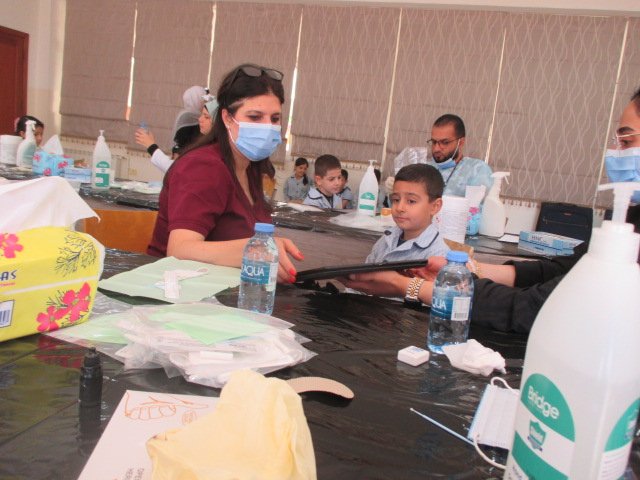
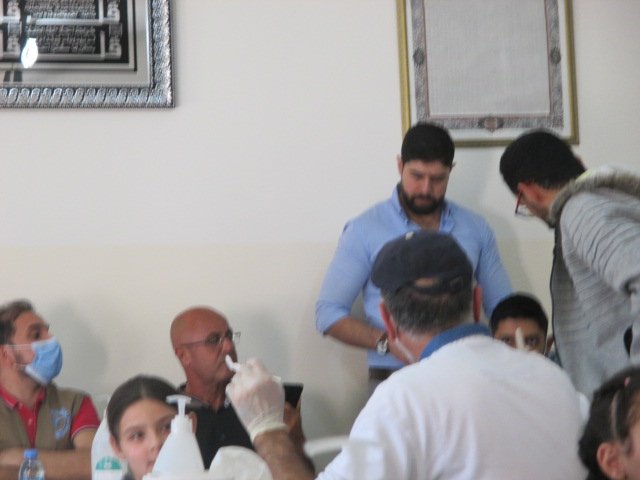
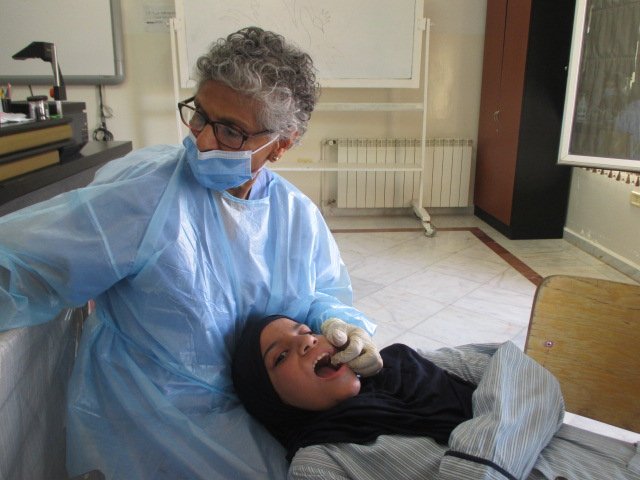
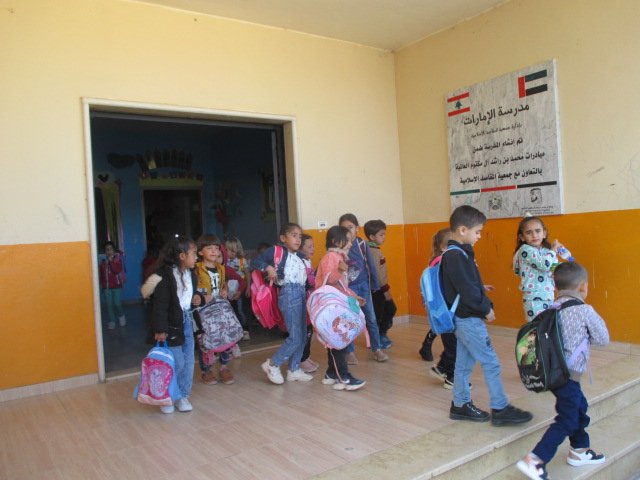
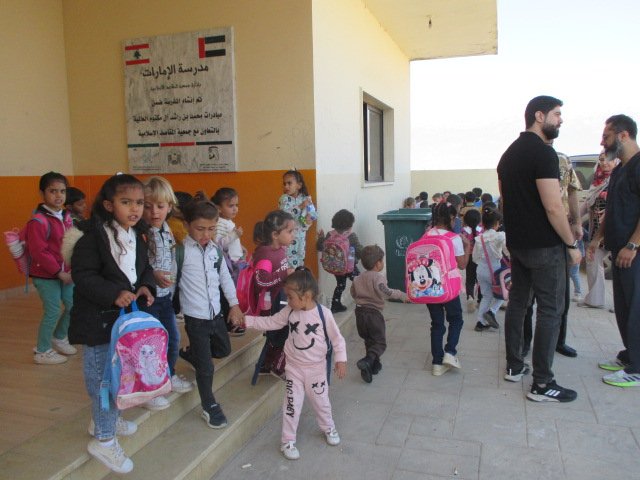
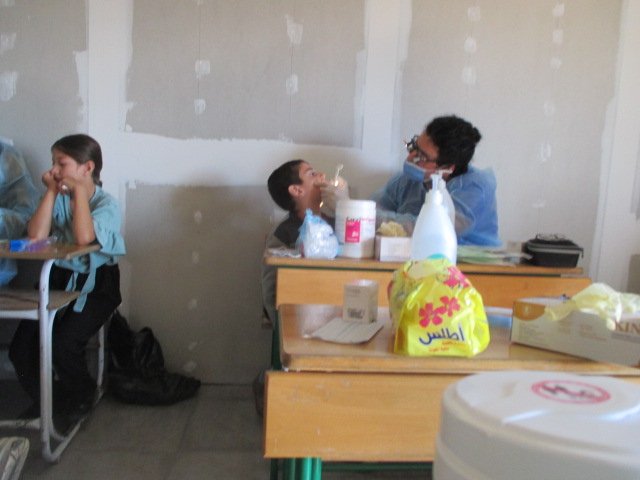

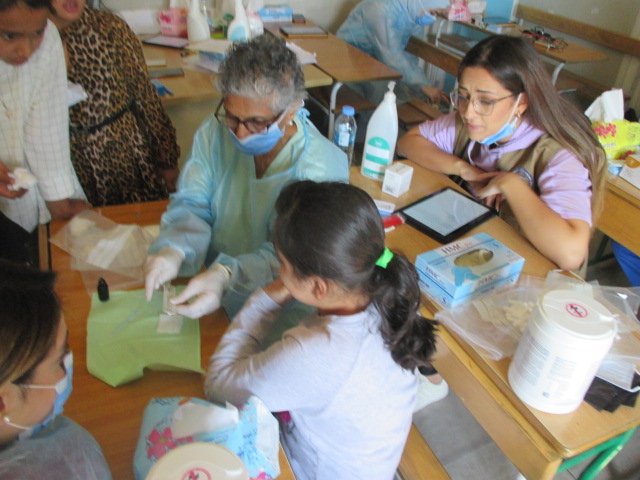
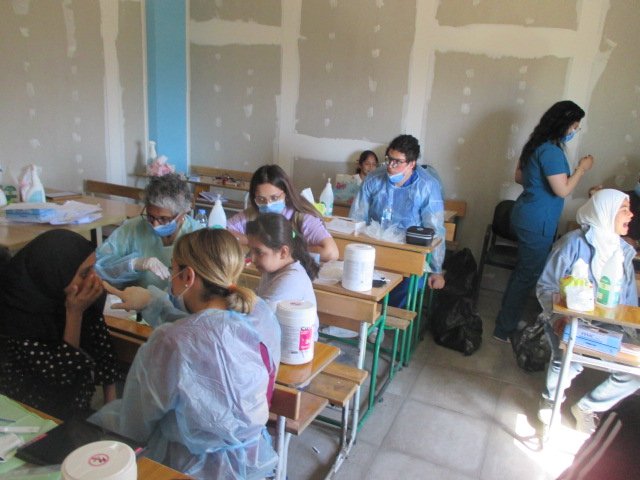
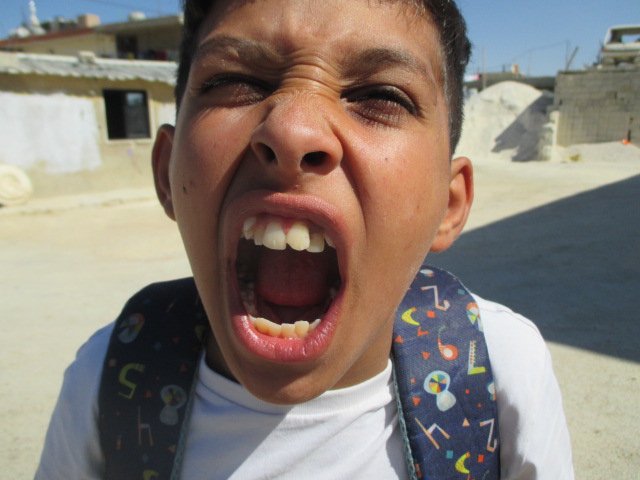
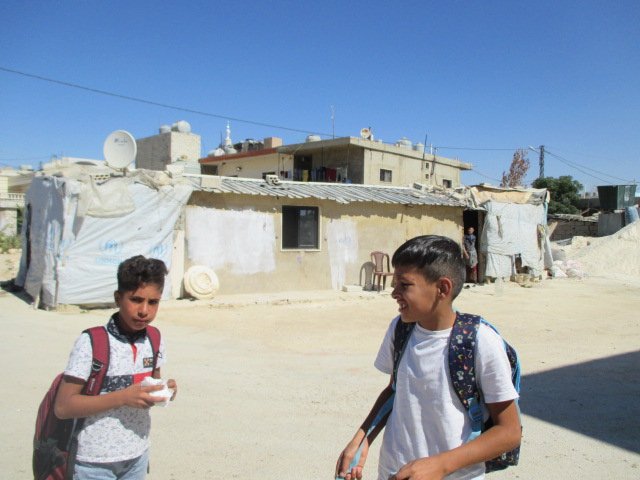
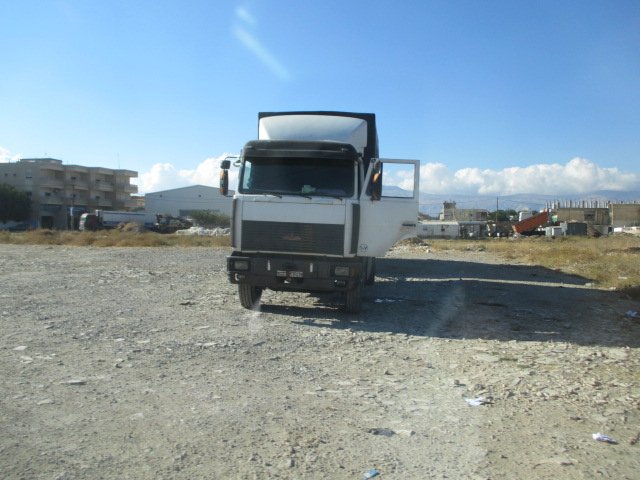
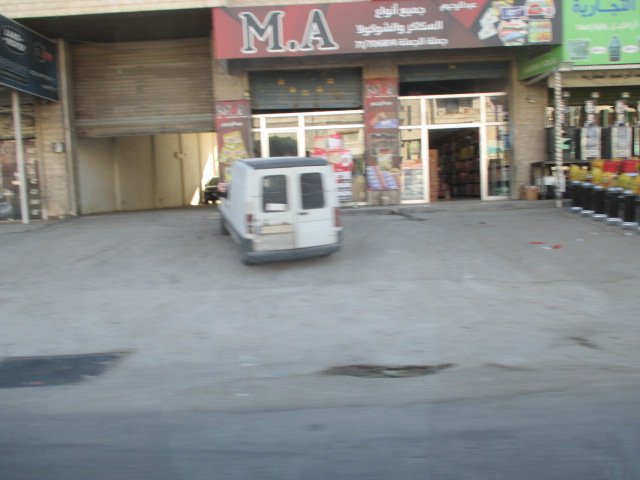
***************************
Delivering Dentalcare in the Mountains of Hunza
May 2022
A group of Dentists under the umbrella of the Agakhan Health Services chaired by Dr. Amir Lallani went to Gilgit and Hunza to take care of the dental needs of the children in the schools in the remote area.
The participating dentists were Dr. Faisal Hashwani, originally from Pakistan but practicing at the AHS in Tanzania. Dr. Yasmin Shamji who donated the dental clinic in Gilgit and myself.
Make it stand out
Whatever it is, the way you tell your story online can make all the difference.
